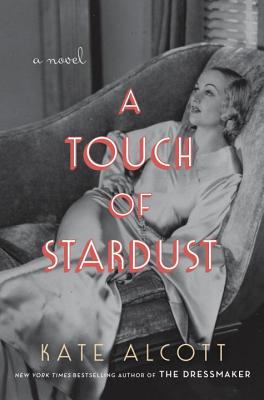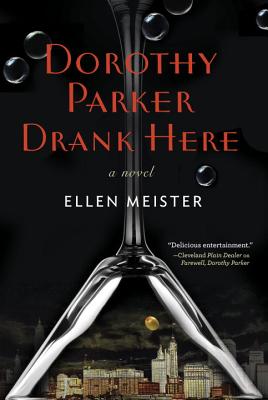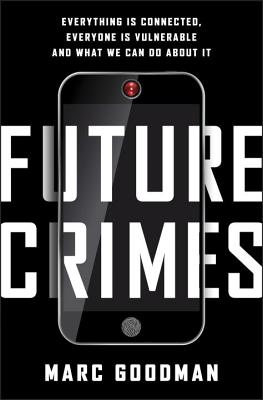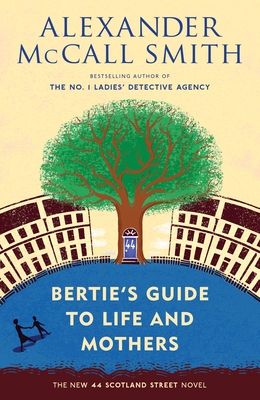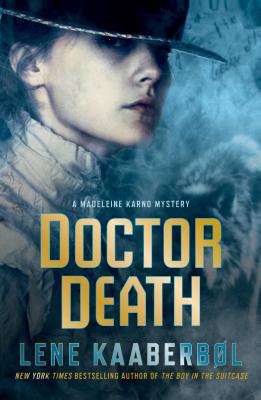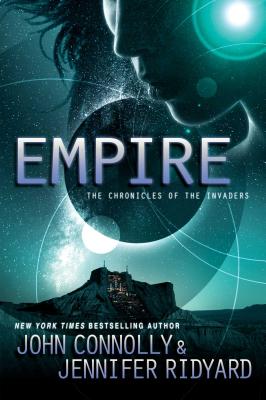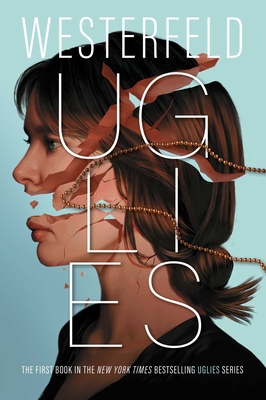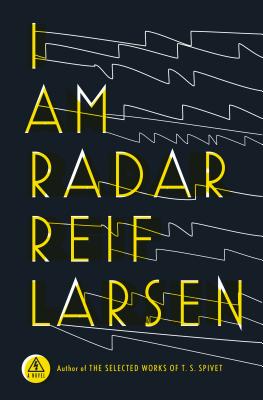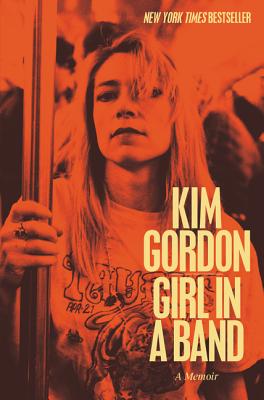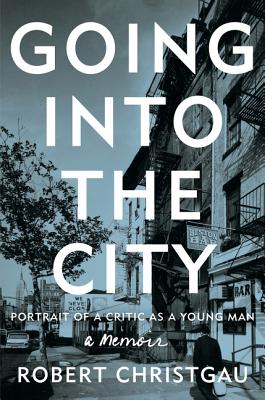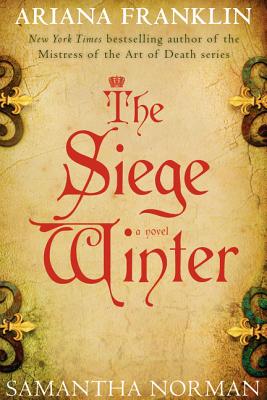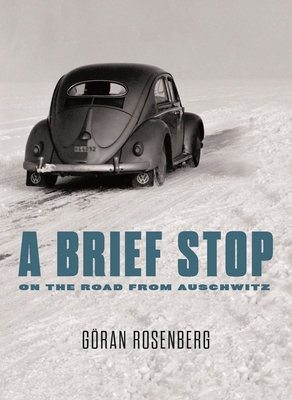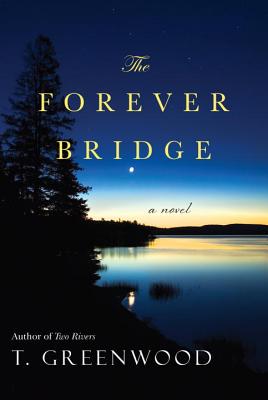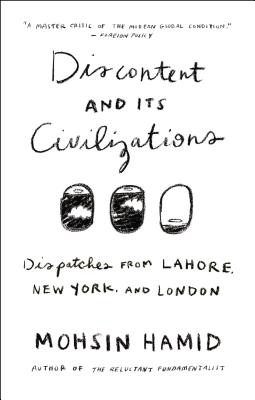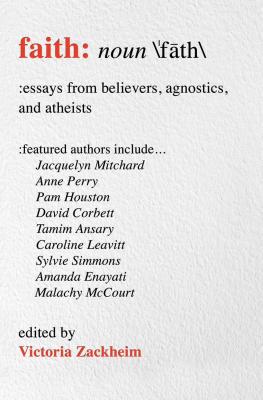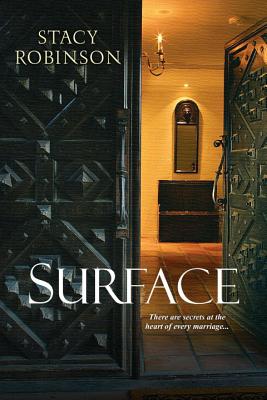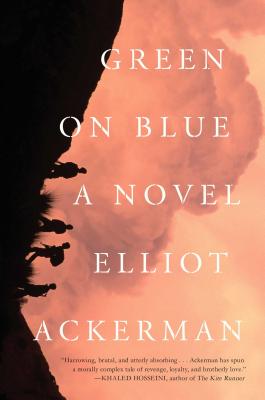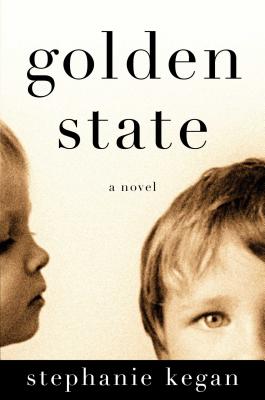Thoughts on books, reading and publishing from the staff and friends of the Tattered Cover Book Store.
Saturday, February 28, 2015
Fresh Ink: Spotlight on Debut Books of All Kinds
Funny, clever, surreal, and thought-provoking, this Kafkaesque masterpiece introduces the unforgettable Bjorn, an exceptionally meticulous office worker striving to live life on his own terms.
Bjorn is a compulsive, meticulous bureaucrat who discovers a secret room at the government office where he works--a secret room that no one else in his office will acknowledge. When Bjorn is in his room, what his co-workers see is him standing by the wall and staring off into space looking dazed, relaxed, and decidedly creepy. Bjorn's bizarre behavior eventually leads his co-workers to try and have him fired, but Bjorn will turn the tables on them with help from his secret room.
Debut author Jonas Karlsson doesn't leave a word out of place in this brilliant, bizarre, delightful take on how far we will go--in a world ruled by conformity--to live an individual and examined life.
Read an excerpt HERE.
'The Room' Offers An Escape From The Office — Or Does It?
Praise for the book:
“The Room is the most effective chapbook on workplace comportment since Glengarry Glen Ross. Hats off!” ~Nick Offerman, author of Paddle Your Own Canoe
“A gripping, tense, demonic fable in which the unease is precision-tooled and the turns of the screw wholly unexpected.” ~Neel Mukherjee, author of The Lives of Others
“The daily grind got you down? Escape into this Swedish dark comedy about a scaldingly contemptuous office drone who discovers a secret room in his workplace.” ~O, the Oprah Magazine
“Karlsson deftly captures individual voices, which he conveys directly (as Björn reveals his obsessions) and indirectly (as Björn describes interactions with coworkers). Using Björn’s voice to draw characters and build dramatic tension, Karlsson exposes the gifts and gaffes, visions and delusions, and the rise and fall of a seemingly ordinary civil servant.” ~Publishers Weekly
“A contemporary tale worthy of comparison to Franz Kafka’s works, Amélie Nothomb’s Fear and Trembling, and Herman Melville’s classic Bartelby, the Scrivener, while the antics of Björn’s fellow workers recall Terry Gilliam’s film 'Brazil'. Enjoyable reading, extremely well executed, this fable should become mandatory reading for cubicle and office workers everywhere.” ~Library Journal
“Provocative…Karlsson’s deft jab at dead-end workplaces keeps you agreeably off-balance and eager for more of his work.” ~Kirkus Reviews
“Part psychological drama documenting a disturbed man’s possible descent into madness and part satirical take on corporate culture and the alienated workers it produces, Karlsson succeeds admirably in creating the perfect combination of funny, surreal, and disturbing.” ~Booklist
Bjorn is a compulsive, meticulous bureaucrat who discovers a secret room at the government office where he works--a secret room that no one else in his office will acknowledge. When Bjorn is in his room, what his co-workers see is him standing by the wall and staring off into space looking dazed, relaxed, and decidedly creepy. Bjorn's bizarre behavior eventually leads his co-workers to try and have him fired, but Bjorn will turn the tables on them with help from his secret room.
Debut author Jonas Karlsson doesn't leave a word out of place in this brilliant, bizarre, delightful take on how far we will go--in a world ruled by conformity--to live an individual and examined life.
Read an excerpt HERE.
'The Room' Offers An Escape From The Office — Or Does It?
Praise for the book:
“The Room is the most effective chapbook on workplace comportment since Glengarry Glen Ross. Hats off!” ~Nick Offerman, author of Paddle Your Own Canoe
“A gripping, tense, demonic fable in which the unease is precision-tooled and the turns of the screw wholly unexpected.” ~Neel Mukherjee, author of The Lives of Others
“The daily grind got you down? Escape into this Swedish dark comedy about a scaldingly contemptuous office drone who discovers a secret room in his workplace.” ~O, the Oprah Magazine
“Karlsson deftly captures individual voices, which he conveys directly (as Björn reveals his obsessions) and indirectly (as Björn describes interactions with coworkers). Using Björn’s voice to draw characters and build dramatic tension, Karlsson exposes the gifts and gaffes, visions and delusions, and the rise and fall of a seemingly ordinary civil servant.” ~Publishers Weekly
“A contemporary tale worthy of comparison to Franz Kafka’s works, Amélie Nothomb’s Fear and Trembling, and Herman Melville’s classic Bartelby, the Scrivener, while the antics of Björn’s fellow workers recall Terry Gilliam’s film 'Brazil'. Enjoyable reading, extremely well executed, this fable should become mandatory reading for cubicle and office workers everywhere.” ~Library Journal
“Provocative…Karlsson’s deft jab at dead-end workplaces keeps you agreeably off-balance and eager for more of his work.” ~Kirkus Reviews
“Part psychological drama documenting a disturbed man’s possible descent into madness and part satirical take on corporate culture and the alienated workers it produces, Karlsson succeeds admirably in creating the perfect combination of funny, surreal, and disturbing.” ~Booklist
Fresh Ink: Spotlight on Debut Books of All Kinds
This gutsy collection offers a brilliant reflection on life as a young lesbian and breast cancer survivor. Through discussions of madness, religion, gender and feminism, Gruber captivates with heartbreaking candor and wit. From her teenage Dian Fossey to her Virginia Woolf of Drama Club, Gruber invites us into a world of brash, bookish hilarity, as she navigates an unusual life, interrupted. In You're Not Edith, Gruber asks herself how best to live and finds answers big enough for all of us.
Read an excerpt HERE.
And another HERE.
Read an interview with the author HERE.
Praise for the book:
“These stories are especially moving for their simplicity and for Gruber's honest, straightforward manner of storytelling. The result is a slim but powerful book.” ~Publishers Weekly
“In-your-face funny and heartbreakingly sad….Gruber's essays add up to a kaleidoscopically engaging read.” ~Booklist
Read an excerpt HERE.
And another HERE.
Read an interview with the author HERE.
Praise for the book:
“These stories are especially moving for their simplicity and for Gruber's honest, straightforward manner of storytelling. The result is a slim but powerful book.” ~Publishers Weekly
“In-your-face funny and heartbreakingly sad….Gruber's essays add up to a kaleidoscopically engaging read.” ~Booklist
Indies Introduce... Debut Authors
Winner of the Guardian First Book Award
Winner of the Rooney Prize for Irish Literature
A stunning introduction to a singular new voice in contemporary fiction.
Enter the small, rural town of Glanbeigh, a place whose fate took a downturn with the Celtic Tiger, a desolate spot where buffoonery and tension simmer and erupt, and booze-sodden boredom fills the corners of every pub and nightclub. Here, and in the towns beyond, the young live hard and wear the scars.
Amongst them, there's jilted Jimmy, whose best friend Tug is the terror of the town and Jimmy's sole company in his search for the missing Clancy kid; Bat, a lovesick soul with a face like "a bowl of mashed up spuds" even before Nubbin Tansey's boot kicked it in; and Arm, a young and desperate criminal whose destiny is shaped when he and his partner, Dympna, fail to carry out a job. In each story, a local voice delineates the grittiness of post boom Irish society. These are unforgettable characters rendered through silence, humor, and violence.
Told in Barrett's vibrant, distinctive prose, Young Skins is an accomplished and irreverent debut from a brilliant writer.
Interview: Author Colin Barrett
Ending Up With a Collection; Colin Barrett on Young Skins
Colin Barrett blazing a trail with short stories
This Week in Fiction: Colin Barrett
Read one of the stories HERE.
Friday, February 27, 2015
Jeff C. Has Some New YA Titles To Introduce To You
Frostfire is the first book in the next trilogy by New York Times bestselling author, Amanda Hocking!
Hidden deep in the heart of a snow-covered wilderness lies the secret kingdom of the Kanin—a magical realm as beautiful as it is treacherous…
Bryn Aven has never fit into Kanin society. Her blond hair and blue eyes set her apart as an outsider—a half-blood unable to hold a respectable rank. But she’s determined to prove herself as a loyal protector of the kingdom she loves. Her dream is to become a member of the King’s elite guard, and she’s not going to let anything stand in her way…not even her growing feelings for her boss, Ridley Dresden. A relationship between them is strictly forbidden, but Bryn can’t fight her attraction to him. And she’s beginning to think he feels it too.
Meanwhile, there’s an attack on the kingdom—one that will test Bryn’s strength like never before. Finally, she has the chance to confront Konstantin Black, the traitor who tried to kill her father years ago. It’s up to Bryn to put a stop to him before he strikes again. But is she willing to risk everything to protect a kingdom that doesn’t accept her for who she really is? And when her mission brings her closer to Ridley, will she be able to deny her heart?
Hidden deep in the heart of a snow-covered wilderness lies the secret kingdom of the Kanin—a magical realm as beautiful as it is treacherous…
Bryn Aven has never fit into Kanin society. Her blond hair and blue eyes set her apart as an outsider—a half-blood unable to hold a respectable rank. But she’s determined to prove herself as a loyal protector of the kingdom she loves. Her dream is to become a member of the King’s elite guard, and she’s not going to let anything stand in her way…not even her growing feelings for her boss, Ridley Dresden. A relationship between them is strictly forbidden, but Bryn can’t fight her attraction to him. And she’s beginning to think he feels it too.
Meanwhile, there’s an attack on the kingdom—one that will test Bryn’s strength like never before. Finally, she has the chance to confront Konstantin Black, the traitor who tried to kill her father years ago. It’s up to Bryn to put a stop to him before he strikes again. But is she willing to risk everything to protect a kingdom that doesn’t accept her for who she really is? And when her mission brings her closer to Ridley, will she be able to deny her heart?
Maddy Spier's been in love with the boy next door forever. As his figure skating partner she spends time in his arms every day. But she’s also seen his arms around other girls—lots of other girls. How can she make him realize that they can be partners off the ice as well?
Gabe’s relationship with Maddy is vital. He can’t imagine skating with anyone else, and together they have a real chance at gold–maybe even making it to the Olympics! So he’s decided to think of her as a sister. After all, family is forever, but he’s never dated anyone for more than two weeks.
Then their coach assigns a new romantic skating program, and everything changes. Will this be the big break that Maddy’s been hoping for or the big break-up that Gabe has always feared?
Then their coach assigns a new romantic skating program, and everything changes. Will this be the big break that Maddy’s been hoping for or the big break-up that Gabe has always feared?
Romance and action come crashing together in Susan Adrian's Tunnel Vision in which a teenage boy with incredible powers is brought to the attention of the government.
Jake Lukin just turned 18. He's decent at tennis and Halo, and waiting to hear on his app to Stanford. But he's also being followed by a creep with a gun, and there's a DARPA agent waiting in his bedroom. His secret is blown.
When Jake holds a personal object, like a pet rock or a ring, he has the ability to "tunnel" into the owner. He can sense where they are, like a human GPS, and can see, hear, and feel what they do. It's an ability the government would do anything to possess: a perfect surveillance unit who could locate fugitives, spies, or terrorists with a single touch.
Jake promised his dad he’d never tell anyone about his ability. But his dad died two years ago, and Jake slipped. If he doesn't agree to help the government, his mother and sister may be in danger. Suddenly he's juggling high school, tennis tryouts, flirting with Rachel Watkins, and work as a government asset, complete with 24-hour bodyguards.
Forced to lie to his friends and family, and then to choose whether to give up everything for their safety, Jake hopes the good he's doing—finding kidnap victims and hostages, and tracking down terrorists—is worth it. But he starts to suspect the good guys may not be so good after all. With Rachel's help, Jake has to try to escape both good guys and bad guys and find a way to live his own life instead of tunneling through others.
Jake Lukin just turned 18. He's decent at tennis and Halo, and waiting to hear on his app to Stanford. But he's also being followed by a creep with a gun, and there's a DARPA agent waiting in his bedroom. His secret is blown.
When Jake holds a personal object, like a pet rock or a ring, he has the ability to "tunnel" into the owner. He can sense where they are, like a human GPS, and can see, hear, and feel what they do. It's an ability the government would do anything to possess: a perfect surveillance unit who could locate fugitives, spies, or terrorists with a single touch.
Jake promised his dad he’d never tell anyone about his ability. But his dad died two years ago, and Jake slipped. If he doesn't agree to help the government, his mother and sister may be in danger. Suddenly he's juggling high school, tennis tryouts, flirting with Rachel Watkins, and work as a government asset, complete with 24-hour bodyguards.
Forced to lie to his friends and family, and then to choose whether to give up everything for their safety, Jake hopes the good he's doing—finding kidnap victims and hostages, and tracking down terrorists—is worth it. But he starts to suspect the good guys may not be so good after all. With Rachel's help, Jake has to try to escape both good guys and bad guys and find a way to live his own life instead of tunneling through others.
Debut-novelist Jenny Elliott’s thrilling romance, chosen by readers, writers, and publishers for the first list in the new Swoon Reads imprint, pours on the tension and danger in an addictive combination that will keep you turning pages!
Something strange is going on in the tiny coastal town of Liberty, Oregon. Cara has never seen a whale swim close enough for her to touch it—let alone knock her into the freezing water. Fortunately, cute newcomer David is there to save her, and the rescue leads to a bond deeper than Cara ever imagined.
But then she learns something about David that changes everything, and Cara is devastated. She turns to her best friend for support, but Rachel has changed. She’s suddenly into witchcraft, and is becoming dangerously obsessed with her new boyfriend….
Cara has lost her best friend, discovered that her soul mate is off limits, and has attracted the attention of a stalker. But she’s not completely alone. Her mysterious, gorgeous new friend Garren is there to support her. But is Garren possibly too perfect?
Something strange is going on in the tiny coastal town of Liberty, Oregon. Cara has never seen a whale swim close enough for her to touch it—let alone knock her into the freezing water. Fortunately, cute newcomer David is there to save her, and the rescue leads to a bond deeper than Cara ever imagined.
But then she learns something about David that changes everything, and Cara is devastated. She turns to her best friend for support, but Rachel has changed. She’s suddenly into witchcraft, and is becoming dangerously obsessed with her new boyfriend….
Cara has lost her best friend, discovered that her soul mate is off limits, and has attracted the attention of a stalker. But she’s not completely alone. Her mysterious, gorgeous new friend Garren is there to support her. But is Garren possibly too perfect?
Timeless, beautiful, and haunting, spirals connect the four episodes of The Ghosts of Heaven, the mesmerizing new novel from Printz Award winner Marcus Sedgwick.
They are there in prehistory, when a girl picks up a charred stick and makes the first written signs; there tens of centuries later, hiding in the treacherous waters of Golden Beck that take Anna, who people call a witch; there in the halls of a Long Island hospital at the beginning of the 20th century, where a mad poet watches the oceans and knows the horrors it hides; and there in the far future, as an astronaut faces his destiny on the first spaceship sent from earth to colonize another world. Each of the characters in these mysterious linked stories embarks on a journey of discovery and survival; carried forward through the spiral of time, none will return to the same place.
Thrills To Make You Forget The Chills These Winter Days
Touch is the electrifying new thriller from the author of The First Fifteen Lives of Harry August.
He tried to take my life. Instead I took his.
It was a long time ago. I remember it was dark, and I didn’t see my killer until it was too late. As I died, my hand touched his. That’s when the first switch took place.
Suddenly, I was looking through the eyes of my killer, and I was watching myself die.
Now switching is easy. I can jump from body to body, have any life, be anyone.
Some people touch lives. Others take them. I do both.
He tried to take my life. Instead I took his.
It was a long time ago. I remember it was dark, and I didn’t see my killer until it was too late. As I died, my hand touched his. That’s when the first switch took place.
Suddenly, I was looking through the eyes of my killer, and I was watching myself die.
Now switching is easy. I can jump from body to body, have any life, be anyone.
Some people touch lives. Others take them. I do both.
New York City school teacher Raymond Donne has no idea how bad his night is going to get when he picks up the phone. Ricky Torres, his old friend from his days as a cop, needs Ray’s help, and he needs it right now---in the middle of the night. Ricky picks Ray up in the taxi he’s been driving since returning from serving as a marine in Iraq, but before Ricky can tell Ray what’s going on, the windows of the taxi explode under a hail of bullets killing Ricky and knocking Ray unconscious as he dives to pull his friend out of harm’s way.
Ray would’ve done anything to help Ricky out while he was alive. Now that he’s dead, he’ll go to the same lengths to find out who did it and why. All he has to go on is that Ricky was working with Jack Knight, Ray’s old nemesis, another ex-cop turned PI. They were investigating the disappearance of a PR giant’s daughter who had ties to the same Brooklyn streets that all three of them used to work. Is that what got Ricky killed or was he into something even more dangerous? Was there anything that Ray could’ve done for him while he was alive? Is there anything he can do for him now?
Filled with the kinds of unexpected twists that make for the best crime fiction, and with secrets that run far deeper than loyalties, Dead Red is the most thrilling mystery yet in Tim O’Mara’s widely acclaimed series.
Ray would’ve done anything to help Ricky out while he was alive. Now that he’s dead, he’ll go to the same lengths to find out who did it and why. All he has to go on is that Ricky was working with Jack Knight, Ray’s old nemesis, another ex-cop turned PI. They were investigating the disappearance of a PR giant’s daughter who had ties to the same Brooklyn streets that all three of them used to work. Is that what got Ricky killed or was he into something even more dangerous? Was there anything that Ray could’ve done for him while he was alive? Is there anything he can do for him now?
Filled with the kinds of unexpected twists that make for the best crime fiction, and with secrets that run far deeper than loyalties, Dead Red is the most thrilling mystery yet in Tim O’Mara’s widely acclaimed series.
The award-winning New York Times bestselling author of After I'm Gone, The Most Dangerous Thing, I'd Know You Anywhere, and What the Dead Know brings back private detective Tess Monaghan, introduced in the classic Baltimore Blues, in an absorbing mystery that plunges the new parent into a disturbing case involving murder and a manipulative mother
"I'm every woman's worst nightmare. . . . Because whenever a woman kills her child every other mother--at least every one who's honest with herself--has a flash of sympathy. Not empathy. They don't want to have done it, cannot imagine doing it. But they know."
On a searing August day, Melisandre Harris Dawes committed the unthinkable: she left her two-month-old daughter locked in a car while she sat nearby on the shores of the Patapsco River. Melisandre was found not guilty by reason of criminal insanity, although there was much skepticism about her mental state. Freed, she left the country, her husband, and her two surviving children, determined to start over.
But now Melisandre has returned to Baltimore to meet with her estranged teenage daughters and film the reunion for a documentary. The problem is, she relinquished custody and her ex isn't sure he approves.
Now that she's a mother herself--short on time and patience--Tess Monaghan wants nothing to do with a woman crazy enough to have killed her own child. But her mentor and close friend Tyner Gray, Melisandre's lawyer, has asked Tess and her new partner, retired Baltimore PD homicide detective Sandy Sanchez, to assess Melisandre's security needs.
Tess has always felt that her curiosity about others is her greatest strength. Yet the imperious Melisandre is someone she cannot begin to understand, much less empathize with. A decade ago, a judge ruled that Melisandre was beyond rational thought. But was she? Tess tries to keep her distance from her mercurial yet confident client. This strategy gets tricky after Melisandre becomes a prime suspect in a murder.
And as her doubts about Melisandre grow, Tess realizes that she's under scrutiny as well, followed by a judgmental stalker with an ax to grind . . .
On a searing August day, Melisandre Harris Dawes committed the unthinkable: she left her two-month-old daughter locked in a car while she sat nearby on the shores of the Patapsco River. Melisandre was found not guilty by reason of criminal insanity, although there was much skepticism about her mental state. Freed, she left the country, her husband, and her two surviving children, determined to start over.
But now Melisandre has returned to Baltimore to meet with her estranged teenage daughters and film the reunion for a documentary. The problem is, she relinquished custody and her ex isn't sure he approves.
Now that she's a mother herself--short on time and patience--Tess Monaghan wants nothing to do with a woman crazy enough to have killed her own child. But her mentor and close friend Tyner Gray, Melisandre's lawyer, has asked Tess and her new partner, retired Baltimore PD homicide detective Sandy Sanchez, to assess Melisandre's security needs.
Tess has always felt that her curiosity about others is her greatest strength. Yet the imperious Melisandre is someone she cannot begin to understand, much less empathize with. A decade ago, a judge ruled that Melisandre was beyond rational thought. But was she? Tess tries to keep her distance from her mercurial yet confident client. This strategy gets tricky after Melisandre becomes a prime suspect in a murder.
And as her doubts about Melisandre grow, Tess realizes that she's under scrutiny as well, followed by a judgmental stalker with an ax to grind . . .
It is the autumn of 1278. The harvest is in. The air is crisp. Dusty summer breathes a last sigh before the dark seasons arrive. For Prioress Eleanor, dark times arrive early in Norfolk. The head of her order, Abbess Isabeau, has sent Father Etienne Davoir from its headquarters in France to inspect all aspects of Tyndal Priory from its morals to its roofs. Surely the Abbess would not have chosen her own brother for this rare and thorough investigation unless the cause was serious and she had reason to fear intervention from Rome.
Prioress Eleanor knows something is terribly amiss. The situation turns calamitous when Davoir's sick clerk dies from a potion sent by Sister Anne, Tyndale s sub-infirmarian. Is Sister Anne guilty of simple incompetence or murder? Or, Davoir asks, did Prioress Eleanor order the death to frighten him away before he discovered the truth behind accusations she is unfit for her position? When Davoir himself is threatened, the priest roars for justice. Even expectant father Crowner Ralf, the local representative of the king's justice, has lost all objectivity. The most likely suspects are Anne, the woman Ralf once loved, the prioress he respects, and the Tyndal monk, Thomas, who is his closest friend. Who among the French and English assembled at Tyndal has succumbed to Satan's lullaby?
Magician Valentine Hill always introduces her act by announcing "Reality is an illusion. Illusion is reality, and nothing is what it seems." When Valentine is reunited with her grifter mother, nothing is what it seems becomes true in real life. A wealthy socialite turns out to be a ruthless criminal, a car mechanic a psycho killer, and a cab driver a seductive gangster. When an FBI agent who'd befriended her is killed, Valentine takes on the hated role of a con artist to get evidence to put the criminals away. Will her skills as a magician prove enough to help her maintain the illusion?
Cam goes undercover at the theater while rejecting demands from his fiancee that they marry this month. His psychic gifts have expanded to levitate objects, make garbage cans dance in the street, and restrain a car from hitting a lady. He fears for their children. She wants to put him on television. Meanwhile, a new Grace Street client, owner of popular BeautiQueen Cosmetics, is searching for her arrogant, absconding partner. Randall tracks him to Clearwater, Florida, and soon finds himself chasing shoplifters stealing pharmaceuticals and helping a jazz musician woo his woman while failing to woo his own love, Kary. Will Randall and Cam piece all this together?
Kepler
had never meant to die this way -- viciously beaten to death by a
stinking vagrant in a dark back alley. But when reaching out to the
murderer for salvation in those last dying moments, a sudden switch
takes place.
Now Kepler is looking out through the
eyes of the killer himself, staring down at a broken and ruined body
lying in the dirt of the alley.
Instead of
dying, Kepler has gained the ability to roam from one body to another,
to jump into another person's skin and see through their eyes, live
their life -- be it for a few minutes, a few months or a lifetime.
Kepler
means these host bodies no harm -- and even comes to cherish them
intimately like lovers. But when one host, Josephine Cebula, is brutally
assassinated, Kepler embarks on a mission to seek the truth -- and
avenge Josephine's death.
- See more at: http://www.hachettebookgroup.com/titles/claire-north/touch/9780316335928/#desc
Kepler
had never meant to die this way -- viciously beaten to death by a
stinking vagrant in a dark back alley. But when reaching out to the
murderer for salvation in those last dying moments, a sudden switch
takes place.
Now Kepler is looking out through the
eyes of the killer himself, staring down at a broken and ruined body
lying in the dirt of the alley.
Instead of
dying, Kepler has gained the ability to roam from one body to another,
to jump into another person's skin and see through their eyes, live
their life -- be it for a few minutes, a few months or a lifetime.
Kepler
means these host bodies no harm -- and even comes to cherish them
intimately like lovers. But when one host, Josephine Cebula, is brutally
assassinated, Kepler embarks on a mission to seek the truth -- and
avenge Josephine's death.
- See more at: http://www.hachettebookgroup.com/titles/claire-north/touch/9780316335928/#desc
Kepler
had never meant to die this way -- viciously beaten to death by a
stinking vagrant in a dark back alley. But when reaching out to the
murderer for salvation in those last dying moments, a sudden switch
takes place.
Now Kepler is looking out through the
eyes of the killer himself, staring down at a broken and ruined body
lying in the dirt of the alley.
Instead of
dying, Kepler has gained the ability to roam from one body to another,
to jump into another person's skin and see through their eyes, live
their life -- be it for a few minutes, a few months or a lifetime.
Kepler
means these host bodies no harm -- and even comes to cherish them
intimately like lovers. But when one host, Josephine Cebula, is brutally
assassinated, Kepler embarks on a mission to seek the truth -- and
avenge Josephine's death.
- See more at: http://www.hachettebookgroup.com/titles/claire-north/touch/9780316335928/#desc"All of us are creatures of a day," wrote Marcus Aurelius, "rememberer and remembered alike."
In his long-awaited new collection of stories, renowned psychiatrist Irvin D. Yalom describes his patients' struggles--as well as his own--to come to terms with the two great challenges of existence: how to have a meaningful life, and how to reckon with its inevitable end. In these pages, we meet a nurse, angry and adrift in a morass of misery where she has lost a son to a world of drugs and crime, and yet who must comfort the more privileged through their own pain; a successful businessman who, in the wake of a suicide, despairs about the gaps and secrets that infect every relationship; a newly
minted psychologist whose study of the human condition damages her treasured memories of a lost friend; and a man whose rejection of philosophy forces even Yalom himself into a crisis of confidence. Their names and stories will linger long after the book's last page is turned.
Like Love's Executioner, which established Yalom's preeminence as a storyteller illuminating the drama of existential therapy, Creatures of a Day is funny, earthy, and often shocking; it is a radically honest statement about the difficulties of human life, but also a celebration of some of the finest fruits--love, family, friendship --that life can bear. We are all creatures of a day. With Yalom as a guide, we can find in this book the means not just to make our own day bearable, but meaningful--and perhaps even joyful.
Learn more about the book and the author HERE.
minted psychologist whose study of the human condition damages her treasured memories of a lost friend; and a man whose rejection of philosophy forces even Yalom himself into a crisis of confidence. Their names and stories will linger long after the book's last page is turned.
Like Love's Executioner, which established Yalom's preeminence as a storyteller illuminating the drama of existential therapy, Creatures of a Day is funny, earthy, and often shocking; it is a radically honest statement about the difficulties of human life, but also a celebration of some of the finest fruits--love, family, friendship --that life can bear. We are all creatures of a day. With Yalom as a guide, we can find in this book the means not just to make our own day bearable, but meaningful--and perhaps even joyful.
Learn more about the book and the author HERE.
Thursday, February 26, 2015
"It’s funny how one of the best sports books I’ve ever read is about rowing. I never would have guessed that, but I’m so fortunate to have picked up this very special book about an incredible team of very special individuals." ~Pete
The #1 New York Times–bestselling story about American Olympic triumph in Nazi Germany
For readers of Unbroken, out of the depths of the Depression comes an irresistible story about beating the odds and finding hope in the most desperate of times—the improbable, intimate account of how nine working-class boys from the American West showed the world at the 1936 Olympics in Berlin what true grit really meant.
It was an unlikely quest from the start. With a team composed of the sons of loggers, shipyard workers, and farmers, the University of Washington’s eight-oar crew team was never expected to defeat the elite teams of the East Coast and Great Britain, yet they did, going on to shock the world by defeating the German team rowing for Adolf Hitler. The emotional heart of the tale lies with Joe Rantz, a teenager without family or prospects, who rows not only to regain his shattered self-regard but also to find a real place for himself in the world. Drawing on the boys’ own journals and vivid memories of a once-in-a-lifetime shared dream, Brown has created an unforgettable portrait of an era, a celebration of a remarkable achievement, and a chronicle of one extraordinary young man’s personal quest.
For readers of Unbroken, out of the depths of the Depression comes an irresistible story about beating the odds and finding hope in the most desperate of times—the improbable, intimate account of how nine working-class boys from the American West showed the world at the 1936 Olympics in Berlin what true grit really meant.
It was an unlikely quest from the start. With a team composed of the sons of loggers, shipyard workers, and farmers, the University of Washington’s eight-oar crew team was never expected to defeat the elite teams of the East Coast and Great Britain, yet they did, going on to shock the world by defeating the German team rowing for Adolf Hitler. The emotional heart of the tale lies with Joe Rantz, a teenager without family or prospects, who rows not only to regain his shattered self-regard but also to find a real place for himself in the world. Drawing on the boys’ own journals and vivid memories of a once-in-a-lifetime shared dream, Brown has created an unforgettable portrait of an era, a celebration of a remarkable achievement, and a chronicle of one extraordinary young man’s personal quest.
Pete says:
The Boys in the Boat tells the true story of the amazing American rowing team in the 1936 Berlin Olympic Games. The pinnacle moment, of course, is the big medal race under the watchful eyes of Adolph Hitler and his minions, along with thousands upon thousands of screaming German fans. The more compelling story, however, is just how these young Americans got to the Olympic level, these college boys from the University of Washington.
Rowing was a more popular sport in the early parts of the 20th century than it is today. But it was seen as an ‘elite’ sport, more fitting for Ivy League schools than for country boys from the northwest corner of the country. This particular team of 9 came together during the worst part of the Great Depression. Money was tight and jobs were scarce -- or non-existent. It was astonishing to read about what some of the guys had to go through to find odd jobs, to eat, to study, to pay tuition, and to row, day after day, faster and faster, battling fatigue, battling the elements, to keep winning, to keep going…
The thrust of the story concerns rower Joe Rantz. In the thick of the Depression, when he was just 15, Joe spotted his family packing up the car. After asking where they all were going, Joe was told he wasn’t going anywhere. The family was leaving him behind as he was getting too big and there were too many other mouths to feed. Things like that happened back then. Pets were often abandoned, some people too. But with gumption nearly impossible to believe, Joe maintains his schoolwork, works a myriad of odd jobs, poaches fish from a stream to eat, and yet a couple years later somehow gets himself enrolled at the University of Washington. Joe’s tall and muscular body grabs the attention of someone who suggests he try his hand at rowing, and the rest, they say, is history. It’s funny how one of the best sports books I’ve ever read is about rowing. I never would have guessed that, but I’m so fortunate to have picked up this very special book about an incredible team of very special individuals.
Rowing was a more popular sport in the early parts of the 20th century than it is today. But it was seen as an ‘elite’ sport, more fitting for Ivy League schools than for country boys from the northwest corner of the country. This particular team of 9 came together during the worst part of the Great Depression. Money was tight and jobs were scarce -- or non-existent. It was astonishing to read about what some of the guys had to go through to find odd jobs, to eat, to study, to pay tuition, and to row, day after day, faster and faster, battling fatigue, battling the elements, to keep winning, to keep going…
The thrust of the story concerns rower Joe Rantz. In the thick of the Depression, when he was just 15, Joe spotted his family packing up the car. After asking where they all were going, Joe was told he wasn’t going anywhere. The family was leaving him behind as he was getting too big and there were too many other mouths to feed. Things like that happened back then. Pets were often abandoned, some people too. But with gumption nearly impossible to believe, Joe maintains his schoolwork, works a myriad of odd jobs, poaches fish from a stream to eat, and yet a couple years later somehow gets himself enrolled at the University of Washington. Joe’s tall and muscular body grabs the attention of someone who suggests he try his hand at rowing, and the rest, they say, is history. It’s funny how one of the best sports books I’ve ever read is about rowing. I never would have guessed that, but I’m so fortunate to have picked up this very special book about an incredible team of very special individuals.
Wouldn't It Be Fun If These Books Were True?
From The New York Times bestselling author of The Dressmaker, comes a blockbuster novel that takes you behind-the-scenes of the filming of "Gone with the Wind", while turning the spotlight on the passionate romance between its dashing leading man, Clark Gable, and the blithe, free-spirited actress, Carole Lombard.
When Julie Crawford leaves Fort Wayne, Indiana for Hollywood, she never imagines she'll cross paths with Carole Lombard, the dazzling actress from Julie's provincial Midwestern hometown. Although the young woman has dreams of becoming a screenwriter, the only job Julie's able to find is one in the studio publicity office of the notoriously demanding producer David O. Selznick—who is busy burning through directors, writers and money as he begins filming "Gone with the Wind."
Although tensions run high on the set, Julie finds she can step onto the back lot, take in the smell of smoky gunpowder and the soft rustle of hoop skirts, and feel the magical world of "Gone with the Wind" come to life. Julie's access to real-life magic comes when Carole Lombard hires her as an assistant and invites her into the glamorous world Carole shares with Clark Gable—who is about to move into movie history as the dashing Rhett Butler.
Carole Lombard, happily profane and uninhibited, makes no secret of her relationship with Gable, which poses something of a problem for the studio as Gable is technically still married—and the last thing the film needs is more negative publicity. Julie is there to fend off the overly curious reporters, hoping to prevent details about the affair from slipping out. But she can barely keep up with her blonde employer, let alone control what comes out of Carole's mouth, and--as their friendship grows - soon finds she doesn't want to. Carole, both wise and funny, becomes Julie's model for breaking free of the past.
In the ever-widening scope of this story, Julie is given a front-row seat to not one but two of the greatest love affairs of all time: the undeniable on-screen chemistry between Scarlett and Rhett, and off screen, the deepening love between Carole and Clark. Yet beneath the shiny façade, things in Hollywood are never quite what they seem, and Julie must learn to balance career aspirations and her own budding romance with outsized personalities and the overheated drama on set. Vivid, romantic, and filled with Old Hollywood details, A Touch of Stardust will entrance, surprise, and delight.
When Julie Crawford leaves Fort Wayne, Indiana for Hollywood, she never imagines she'll cross paths with Carole Lombard, the dazzling actress from Julie's provincial Midwestern hometown. Although the young woman has dreams of becoming a screenwriter, the only job Julie's able to find is one in the studio publicity office of the notoriously demanding producer David O. Selznick—who is busy burning through directors, writers and money as he begins filming "Gone with the Wind."
Although tensions run high on the set, Julie finds she can step onto the back lot, take in the smell of smoky gunpowder and the soft rustle of hoop skirts, and feel the magical world of "Gone with the Wind" come to life. Julie's access to real-life magic comes when Carole Lombard hires her as an assistant and invites her into the glamorous world Carole shares with Clark Gable—who is about to move into movie history as the dashing Rhett Butler.
Carole Lombard, happily profane and uninhibited, makes no secret of her relationship with Gable, which poses something of a problem for the studio as Gable is technically still married—and the last thing the film needs is more negative publicity. Julie is there to fend off the overly curious reporters, hoping to prevent details about the affair from slipping out. But she can barely keep up with her blonde employer, let alone control what comes out of Carole's mouth, and--as their friendship grows - soon finds she doesn't want to. Carole, both wise and funny, becomes Julie's model for breaking free of the past.
In the ever-widening scope of this story, Julie is given a front-row seat to not one but two of the greatest love affairs of all time: the undeniable on-screen chemistry between Scarlett and Rhett, and off screen, the deepening love between Carole and Clark. Yet beneath the shiny façade, things in Hollywood are never quite what they seem, and Julie must learn to balance career aspirations and her own budding romance with outsized personalities and the overheated drama on set. Vivid, romantic, and filled with Old Hollywood details, A Touch of Stardust will entrance, surprise, and delight.
The acid-tongued Dorothy Parker is back and haunting the halls of the Algonquin with her piercing wit, audacious voice, and unexpectedly tender wisdom.
Heavenly peace? No, thank you. Dorothy Parker would rather wander the famous halls of the Algonquin Hotel, drink in hand, searching for someone, anyone, who will keep her company on this side of eternity.
After forty years she thinks she’s found the perfect candidate in Ted Shriver, a brilliant literary voice of the 1970s, silenced early in a promising career by a devastating plagiarism scandal. Now a prickly recluse, he hides away in the old hotel slowly dying of cancer, which he refuses to treat. If she can just convince him to sign the infamous guestbook of Percy Coates, Dorothy Parker might be able to persuade the jaded writer to spurn the white light with her. Ted, however, might be the only person living or dead who’s more stubborn than Parker, and he rejects her proposal outright.
When a young, ambitious TV producer, Norah Wolfe, enters the hotel in search of Ted Shriver, Parker sees another opportunity to get what she wants. Instead, she and Norah manage to uncover such startling secrets about Ted’s past that the future changes for all of them.
Heavenly peace? No, thank you. Dorothy Parker would rather wander the famous halls of the Algonquin Hotel, drink in hand, searching for someone, anyone, who will keep her company on this side of eternity.
After forty years she thinks she’s found the perfect candidate in Ted Shriver, a brilliant literary voice of the 1970s, silenced early in a promising career by a devastating plagiarism scandal. Now a prickly recluse, he hides away in the old hotel slowly dying of cancer, which he refuses to treat. If she can just convince him to sign the infamous guestbook of Percy Coates, Dorothy Parker might be able to persuade the jaded writer to spurn the white light with her. Ted, however, might be the only person living or dead who’s more stubborn than Parker, and he rejects her proposal outright.
When a young, ambitious TV producer, Norah Wolfe, enters the hotel in search of Ted Shriver, Parker sees another opportunity to get what she wants. Instead, she and Norah manage to uncover such startling secrets about Ted’s past that the future changes for all of them.
"If you control the code, you control the world." ~Marc Goodman
One of the world’s leading authorities on global security, Marc Goodman takes readers deep into the digital underground to expose the alarming ways criminals, corporations, and even countries are using new and emerging technologies against you—and how this makes everyone more vulnerable than ever imagined.
Technological advances have benefited our world in immeasurable ways, but there is an ominous flip side: our technology can be turned against us. Hackers can activate baby monitors to spy on families, thieves are analyzing social media posts to plot home invasions, and stalkers are exploiting the GPS on smart phones to track their victims’ every move. We all know today’s criminals can steal identities, drain online bank accounts, and wipe out computer servers, but that’s just the beginning. To date, no computer has been created that could not be hacked—a sobering fact given our radical dependence on these machines for everything from our nation’s power grid to air traffic control to financial services.
Yet, as ubiquitous as technology seems today, just over the horizon is a tidal wave of scientific progress that will leave our heads spinning. If today’s Internet is the size of a golf ball, tomorrow’s will be the size of the sun. Welcome to the Internet of Things, a living, breathing, global information grid where every physical object will be online. But with greater connections come greater risks. Implantable medical devices such as pacemakers can be hacked to deliver a lethal jolt of electricity and a car’s brakes can be disabled at high speed from miles away. Meanwhile, 3-D printers can produce AK-47s, bioterrorists can download the recipe for Spanish flu, and cartels are using fleets of drones to ferry drugs across borders.
With explosive insights based upon a career in law enforcement and counterterrorism, Marc Goodman takes readers on a vivid journey through the darkest recesses of the Internet. Reading like science fiction, but based in science fact, Future Crimes explores how bad actors are primed to hijack the technologies of tomorrow, including robotics, synthetic biology, nanotechnology, virtual reality, and artificial intelligence. These fields hold the power to create a world of unprecedented abundance and prosperity. But the technological bedrock upon which we are building our common future is deeply unstable and, like a house of cards, can come crashing down at any moment.
Future Crimes provides a mind-blowing glimpse into the dark side of technological innovation and the unintended consequences of our connected world. Goodman offers a way out with clear steps we must take to survive the progress unfolding before us. Provocative, thrilling, and ultimately empowering, Future Crimes will serve as an urgent call to action that shows how we can take back control over our own devices and harness technology’s tremendous power for the betterment of humanity—before it’s too late.
Wired Magazine: The Bio-Crime Prophecy
Cyber-attackers have multiplied and become far more professional
Medium: We Need a Manhattan Project for Cyber Security
Technological advances have benefited our world in immeasurable ways, but there is an ominous flip side: our technology can be turned against us. Hackers can activate baby monitors to spy on families, thieves are analyzing social media posts to plot home invasions, and stalkers are exploiting the GPS on smart phones to track their victims’ every move. We all know today’s criminals can steal identities, drain online bank accounts, and wipe out computer servers, but that’s just the beginning. To date, no computer has been created that could not be hacked—a sobering fact given our radical dependence on these machines for everything from our nation’s power grid to air traffic control to financial services.
Yet, as ubiquitous as technology seems today, just over the horizon is a tidal wave of scientific progress that will leave our heads spinning. If today’s Internet is the size of a golf ball, tomorrow’s will be the size of the sun. Welcome to the Internet of Things, a living, breathing, global information grid where every physical object will be online. But with greater connections come greater risks. Implantable medical devices such as pacemakers can be hacked to deliver a lethal jolt of electricity and a car’s brakes can be disabled at high speed from miles away. Meanwhile, 3-D printers can produce AK-47s, bioterrorists can download the recipe for Spanish flu, and cartels are using fleets of drones to ferry drugs across borders.
With explosive insights based upon a career in law enforcement and counterterrorism, Marc Goodman takes readers on a vivid journey through the darkest recesses of the Internet. Reading like science fiction, but based in science fact, Future Crimes explores how bad actors are primed to hijack the technologies of tomorrow, including robotics, synthetic biology, nanotechnology, virtual reality, and artificial intelligence. These fields hold the power to create a world of unprecedented abundance and prosperity. But the technological bedrock upon which we are building our common future is deeply unstable and, like a house of cards, can come crashing down at any moment.
Future Crimes provides a mind-blowing glimpse into the dark side of technological innovation and the unintended consequences of our connected world. Goodman offers a way out with clear steps we must take to survive the progress unfolding before us. Provocative, thrilling, and ultimately empowering, Future Crimes will serve as an urgent call to action that shows how we can take back control over our own devices and harness technology’s tremendous power for the betterment of humanity—before it’s too late.
Wired Magazine: The Bio-Crime Prophecy
Cyber-attackers have multiplied and become far more professional
Medium: We Need a Manhattan Project for Cyber Security
Wednesday, February 25, 2015
Margaret N. Has Found a Bit More Mischief, Mayhem and Murder on the Shelves This Month
Alexander McCall Smith's wildly popular 44 Scotland Street series chronicles life in a corner of Edinburgh brimming with wit and humor.
Newlywed painter and sometime somnambulist Angus Lordie might be sleepwalking his way into trouble with Animal Welfare when he lets his dog Cyril drink a bit too much lager at the local bar. The longsuffering Bertie, on the cusp of his seventh birthday party, has taken to dreaming about his eighteenth, a time when he will be able to avoid the indignity of unwanted girl attendees and the looming threat of a gender-neutral doll from his domineering mother Irene. Matthew and Elspeth struggle to care for their triplets, contending with Danish au pairs and dubious dukes to boot, while the narcissistic Bruce faces his greatest challenge yet in the form of an over-eager waxologist. As ever, when Alexander McCall Smith visits 44 Scotland Street, fun is sure to follow.
Newlywed painter and sometime somnambulist Angus Lordie might be sleepwalking his way into trouble with Animal Welfare when he lets his dog Cyril drink a bit too much lager at the local bar. The longsuffering Bertie, on the cusp of his seventh birthday party, has taken to dreaming about his eighteenth, a time when he will be able to avoid the indignity of unwanted girl attendees and the looming threat of a gender-neutral doll from his domineering mother Irene. Matthew and Elspeth struggle to care for their triplets, contending with Danish au pairs and dubious dukes to boot, while the narcissistic Bruce faces his greatest challenge yet in the form of an over-eager waxologist. As ever, when Alexander McCall Smith visits 44 Scotland Street, fun is sure to follow.
Strong-minded and ambitious, Madeleine Karno is eager to shatter the constraints of her provincial French upbringing. She wants to become a pathologist like her father, whose assistant she is, but this is 1894, and autopsies are considered unseemly and ungodly, even when performed by a man--hence his odious nickname, Doctor Death. That a young woman should wish to spend her time dissecting corpses is too scandalous for words.
Thus, when seventeen-year-old Cecile Montaine is found dead in the snowy streets of Varbourg, her family will not permit a full post-mortem autopsy, and Madeleine and her father are left with a single mysterious clue: in the dead girl's nostrils they find a type of parasite normally seen only in dogs. Soon after, the priest who held vigil by the dead girl's corpse is brutally murdered. The thread that connects these two events is a tangled one, and as the death toll mounts, Madeleine must seek knowledge in odd places: behind convent walls, in secret diaries, and in the yellow stare of an aging wolf.
Eloquently written and with powerful insight into human and animal nature, Doctor Death is at once a gripping mystery and a poignant coming-of-age story.
Wendy Is Recommending:
Based on true events, this beautifully rendered novel from the author of Schindler's List and The Daughters of Mars brilliantly explores a World War II prison camp, where Japanese prisoners resolve to take drastic action to wipe away their shame.
Alice is a young woman living on her father-in-law's farm on the edge of an Australian country town, while her husband is held prisoner in Europe. When Giancarlo, an Italian anarchist at the prisoner-of-war camp down the road, is assigned to work on the farm, she hopes that being kind to him will somehow influence her husband's treatment. What she doesn't anticipate is how dramatically Giancarlo will expand her outlook and self-knowledge.
But what most challenges Alice and her fellow townspeople is the utter foreignness of the thousand-plus Japanese inmates and their culture, which the camp commanders fatally misread. Mortified by being taken alive in battle and preferring a violent death to the shame of living, they plan an outbreak, to shattering and far-reaching effects on all the citizens around them.
In a career spanning half a century, Thomas Keneally has proved a master at exploring ordinary lives caught up in extraordinary events. With this profoundly gripping and thought-provoking novel, inspired by a notorious incident in New South Wales in 1944, he once again shows why he is celebrated as a writer who "looks into the heart of the human condition with a piercing intelligence that few can match" (Sunday Telegraph).
Empire Book 2 continues the journey of Syl and Paul as they fight to regain planet Earth from a ruthless alien species, in this next installment of a stunning new science fiction trilogy that "should not to be missed" (The Guardian).
She is the trophy of a civilization at war with itself.
He is its rebel captive.
Separated by millions of light years, they will fight to be united...
Earth has been conquered and occupied. The war is lost.
The Resistance still fights the invaders, but they are nothing more than an annoyance to the Illyri, an alien race of superior technology and military strength.
When caught, the young rebels are conscripted. Part soldiers, part hostages, they join the Brigades, sent to fight at the edges of the growing Illyri Empire.
Paul Kerr is one such soldier--torn from his home and his beloved Syl Hellais. She is the first alien child born on Earth, a creature of two worlds--and a being possessed of powers beyond imagining. Now both must endure the terrible exile that Syl's race has deemed just punishment for their love.
But the conquest of Earth is not all it seems.
There is another species involved, known only as the Others, and the Illyri will kill to keep their existence secret.
Light years from Earth and millions of miles apart, Paul and Syl must find a way to reveal the horrifying truth behind the Empire, and save all that they hold dear from the hunger of the Others.
Even at the cost of their own lives...
Alice is a young woman living on her father-in-law's farm on the edge of an Australian country town, while her husband is held prisoner in Europe. When Giancarlo, an Italian anarchist at the prisoner-of-war camp down the road, is assigned to work on the farm, she hopes that being kind to him will somehow influence her husband's treatment. What she doesn't anticipate is how dramatically Giancarlo will expand her outlook and self-knowledge.
But what most challenges Alice and her fellow townspeople is the utter foreignness of the thousand-plus Japanese inmates and their culture, which the camp commanders fatally misread. Mortified by being taken alive in battle and preferring a violent death to the shame of living, they plan an outbreak, to shattering and far-reaching effects on all the citizens around them.
In a career spanning half a century, Thomas Keneally has proved a master at exploring ordinary lives caught up in extraordinary events. With this profoundly gripping and thought-provoking novel, inspired by a notorious incident in New South Wales in 1944, he once again shows why he is celebrated as a writer who "looks into the heart of the human condition with a piercing intelligence that few can match" (Sunday Telegraph).
Empire Book 2 continues the journey of Syl and Paul as they fight to regain planet Earth from a ruthless alien species, in this next installment of a stunning new science fiction trilogy that "should not to be missed" (The Guardian).
She is the trophy of a civilization at war with itself.
He is its rebel captive.
Separated by millions of light years, they will fight to be united...
Earth has been conquered and occupied. The war is lost.
The Resistance still fights the invaders, but they are nothing more than an annoyance to the Illyri, an alien race of superior technology and military strength.
When caught, the young rebels are conscripted. Part soldiers, part hostages, they join the Brigades, sent to fight at the edges of the growing Illyri Empire.
Paul Kerr is one such soldier--torn from his home and his beloved Syl Hellais. She is the first alien child born on Earth, a creature of two worlds--and a being possessed of powers beyond imagining. Now both must endure the terrible exile that Syl's race has deemed just punishment for their love.
But the conquest of Earth is not all it seems.
There is another species involved, known only as the Others, and the Illyri will kill to keep their existence secret.
Light years from Earth and millions of miles apart, Paul and Syl must find a way to reveal the horrifying truth behind the Empire, and save all that they hold dear from the hunger of the Others.
Even at the cost of their own lives...
Tuesday, February 24, 2015
Our YA Reviewer Trinity Has A Few More Great Books To Tell You About
Everybody gets to be supermodel gorgeous. What could be wrong with that?
Tally is about to turn sixteen, and she can't wait. Not for her license -- for turning pretty. In Tally's world, your sixteenth birthday brings an operation that turns you from a repellent ugly into a stunningly attractive pretty and catapults you into a high-tech paradise where your only job is to have a really great time. In just a few weeks Tally will be there.
But Tally's new friend Shay isn't sure she wants to be pretty. She'd rather risk life on the outside. When Shay runs away, Tally learns about a whole new side of the pretty world -- and it isn't very pretty. The authorities offer Tally the worst choice she can imagine: find her friend and turn her in, or never turn pretty at all. The choice Tally makes changes her world forever.
Tally is about to turn sixteen, and she can't wait. Not for her license -- for turning pretty. In Tally's world, your sixteenth birthday brings an operation that turns you from a repellent ugly into a stunningly attractive pretty and catapults you into a high-tech paradise where your only job is to have a really great time. In just a few weeks Tally will be there.
But Tally's new friend Shay isn't sure she wants to be pretty. She'd rather risk life on the outside. When Shay runs away, Tally learns about a whole new side of the pretty world -- and it isn't very pretty. The authorities offer Tally the worst choice she can imagine: find her friend and turn her in, or never turn pretty at all. The choice Tally makes changes her world forever.
Trinity says:
"Tally wishes desperately to become sixteen. On her birthday the government will give her an operation to change every aspect of her to make her biologically perfect. Once she becomes pretty she will have the time of her life with her friends. Until she meets Shay, who gives her a new perspective on the seemingly perfect society. When Shay runs away, Tally needs to turn her in to receive her operation, or run away with her. Uglies was a fantastic revival of the common futuristic utopian society novel. I recommend this for anyone wanting to read a book with aspects of action, adventure and romance."
 A mysterious island.
A mysterious island.
An abandoned orphanage.
A strange collection of very curious photographs.
It all waits to be discovered in Miss Peregrine’s Home for Peculiar Children, an unforgettable novel that mixes fiction and photography in a thrilling reading experience.
As our story opens, a horrific family tragedy sets sixteen-year-old Jacob journeying to a remote island off the coast of Wales, where he discovers the crumbling ruins of Miss Peregrine’s Home for Peculiar Children. As Jacob explores its abandoned bedrooms and hallways, it becomes clear that the children were more than just peculiar. They may have been dangerous. They may have been quarantined on a deserted island for good reason. And somehow—impossible though it seems—they may still be alive. A spine-tingling fantasy illustrated with haunting vintage photography, Miss Peregrine’s Home for Peculiar Children will delight adults, teens, and anyone who relishes an adventure in the shadows.
Trinity says:
"Jacob is accustomed to his grandfather’s fictional tales of monsters and children with superpowers. He used to talk about children who could levitate, control fire and make plants grow; but then he began to fear the monsters that were chasing him. His family always guessed they were a metaphor for the Nazis he barely escaped in his childhood, until he gets killed in the woods. Now Jacob has to find the ancient safe house his grandfather always mentioned before he gets killed too. This was a wonderful book with a creative plot-line, as well as photographs to match the story. I recommend this for anyone willing to give the unusual story a chance."
It’s senior year at St. Joan’s Academy, and school is a pressure cooker. College applications, the battle for valedictorian, deciphering boys’ texts: Through it all, Colleen Rowley and her friends are expected to keep it together. Until they can’t.
First it’s the school’s queen bee, Clara Rutherford, who suddenly falls into uncontrollable tics in the middle of class. Her mystery illness quickly spreads to her closest clique of friends, then more students and symptoms follow: seizures, hair loss, violent coughing fits. St. Joan’s buzzes with rumor; rumor blossoms into full-blown panic.
Soon the media descends on Danvers, Massachusetts, as everyone scrambles to find something, or someone, to blame. Pollution? Stress? Or are the girls faking? Only Colleen—who’s been reading The Crucible for extra credit—comes to realize what nobody else has: Danvers was once Salem Village, where another group of girls suffered from a similarly bizarre epidemic three centuries ago . . .
Inspired by true events—from seventeenth-century colonial life to the halls of a modern-day high school—Conversion casts a spell. With her signature wit and passion, New York Times bestselling author Katherine Howe delivers an exciting and suspenseful novel, a chilling mystery that raises the question, what’s really happening to the girls at St. Joan’s?
First it’s the school’s queen bee, Clara Rutherford, who suddenly falls into uncontrollable tics in the middle of class. Her mystery illness quickly spreads to her closest clique of friends, then more students and symptoms follow: seizures, hair loss, violent coughing fits. St. Joan’s buzzes with rumor; rumor blossoms into full-blown panic.
Soon the media descends on Danvers, Massachusetts, as everyone scrambles to find something, or someone, to blame. Pollution? Stress? Or are the girls faking? Only Colleen—who’s been reading The Crucible for extra credit—comes to realize what nobody else has: Danvers was once Salem Village, where another group of girls suffered from a similarly bizarre epidemic three centuries ago . . .
Inspired by true events—from seventeenth-century colonial life to the halls of a modern-day high school—Conversion casts a spell. With her signature wit and passion, New York Times bestselling author Katherine Howe delivers an exciting and suspenseful novel, a chilling mystery that raises the question, what’s really happening to the girls at St. Joan’s?
Trinity says:
"Colleen is having a typical senior year: high stress, fighting for valedictorian and hoping for a spot at her first choice college. Then, another girl breaks down with a mystery illness. Most of her classmates think it is for attention, others believe it is a reaction to all of the stress; until it begins to spread. The symptoms are extremely varied and no expert is able to identify the disease. Colleen realizes during an assignment that the city she lives in used to be Salem village and the sickness might not be just a sickness.
This was an outstanding historical fiction book. I recommend this novel to anyone who enjoys books with dual storylines with mysteries."
“Strange things happen when Radar Radmanovic is around… If Larsen’s story makes demands of its readers, it also offers plenty of rewards. Imaginative, original, nicely surreal.” ~Kirkus Reviews
The moment just before Radar Radmanovic is born, all of the hospital’s electricity mysteriously fails. The delivery takes place in total darkness. Lights back on, the staff sees a healthy baby boy—with pitch-black skin—born to the stunned white parents. No one understands the uncanny electrical event or the unexpected skin color. “A childbirth is an explosion,” the ancient physician says by way of explanation. “Some shrapnel is inevitable, isn’t it?”
A kaleidoscopic novel both heartbreaking and dazzling, Reif Larsen’s I Am Radar begins with Radar’s perplexing birth but rapidly explodes outward, carrying readers across the globe and throughout history, as well as to unknown regions where radio waves and subatomic particles dance to their own design.
Spanning this extraordinary range with grace and empathy, humor and courage, I Am Radar is the vessel where a century of conflict and art unite in a mesmerizing narrative whole. Deep in arctic Norway, a cadre of Norwegian schoolteachers is imprisoned during the Second World War. Founding a radical secret society that will hover on the margins of recorded history for decades to come, these schoolteachers steal radioactive material from a hidden Nazi nuclear reactor and use it to stage a surreal art performance on a frozen coastline. This strange society appears again in the aftermath of Cambodia’s murderous Khmer Rouge regime, when another secret performance takes place but goes horrifically wrong. Echoes of this disaster can be heard during the Yugoslavian wars, when an avant-garde puppeteer finds himself trapped inside Belgrade while his brother serves in the genocidal militia that attacks Srebrenica. Decades later, in the war-torn Congo, a disfigured literature professor assembles the largest library in the world even as the country around him collapses. All of these stories are linked by Radar—now a gifted radio operator living in the New Jersey Meadowlands—who struggles with love, a set of hapless parents,and a terrible medical affliction that he has only just begun to comprehend.
As I Am Radar accelerates toward its unforgettable conclusion, these divergent strands slowly begin to converge, revealing that beneath our apparent differences, unseen harmonies secretly unite our lives. Drawing on the furthest reaches of quantum physics, forgotten history, and mind-bending art, Larsen’s I Am Radar is a triumph of storytelling at its most primal, elegant, and epic: a breathtaking journey through humanity’s darkest hours only to arrive at a place of shocking wonder and redemption.
Read an excerpt HERE.
A kaleidoscopic novel both heartbreaking and dazzling, Reif Larsen’s I Am Radar begins with Radar’s perplexing birth but rapidly explodes outward, carrying readers across the globe and throughout history, as well as to unknown regions where radio waves and subatomic particles dance to their own design.
Spanning this extraordinary range with grace and empathy, humor and courage, I Am Radar is the vessel where a century of conflict and art unite in a mesmerizing narrative whole. Deep in arctic Norway, a cadre of Norwegian schoolteachers is imprisoned during the Second World War. Founding a radical secret society that will hover on the margins of recorded history for decades to come, these schoolteachers steal radioactive material from a hidden Nazi nuclear reactor and use it to stage a surreal art performance on a frozen coastline. This strange society appears again in the aftermath of Cambodia’s murderous Khmer Rouge regime, when another secret performance takes place but goes horrifically wrong. Echoes of this disaster can be heard during the Yugoslavian wars, when an avant-garde puppeteer finds himself trapped inside Belgrade while his brother serves in the genocidal militia that attacks Srebrenica. Decades later, in the war-torn Congo, a disfigured literature professor assembles the largest library in the world even as the country around him collapses. All of these stories are linked by Radar—now a gifted radio operator living in the New Jersey Meadowlands—who struggles with love, a set of hapless parents,and a terrible medical affliction that he has only just begun to comprehend.
As I Am Radar accelerates toward its unforgettable conclusion, these divergent strands slowly begin to converge, revealing that beneath our apparent differences, unseen harmonies secretly unite our lives. Drawing on the furthest reaches of quantum physics, forgotten history, and mind-bending art, Larsen’s I Am Radar is a triumph of storytelling at its most primal, elegant, and epic: a breathtaking journey through humanity’s darkest hours only to arrive at a place of shocking wonder and redemption.
Read an excerpt HERE.
Kate M. Is Recommending:
Kim Gordon, founding member of Sonic Youth, fashion icon, and role model for a generation of women, now tells her story--a memoir of life as an artist, of music, marriage, motherhood, independence, and as one of the first women of rock and roll, written with the lyricism and haunting beauty of Patti Smith's Just Kids.
Often described as aloof, Kim Gordon opens up as never before in Girl in a Band. Telling the story of her family, growing up in California in the '60s and '70s, her life in visual art, her move to New York City, the men in her life, her marriage, her relationship with her daughter, her music, and her band, Girl in a Band is a rich and beautifully written memoir.
Gordon takes us back to the lost New York of the 1980s and '90s that gave rise to Sonic Youth, and the Alternative revolution in popular music. The band helped build a vocabulary of music--paving the way for Nirvana, Hole, Smashing Pumpkins and many other acts. But at its core, Girl in a Band examines the route from girl to woman in uncharted territory, music, art career, what partnership means--and what happens when that identity dissolves.
Evocative and edgy, filled with the sights and sounds of a changing world and a transformative life, Girl in a Band is the fascinating chronicle of a remarkable journey and an extraordinary artist.
One of our great essayists and music journalists, the Dean of American Rock Critics, leads a heady tour through his life and times in this atmospheric, visceral memoir--both a love letter to a New York long past and a tribute to the transformative power of art
Lifelong New Yorker Robert Christgau has been writing about pop culture since he was twelve and getting paid for it since he was twenty-two, covering rock for Esquire in its heyday and personifying the music beat at The Village Voice for over three decades. Christgau listened to Alan Freed howl about rock and roll before Elvis, settled east of Manhattan's Avenue B forty years before it was cool, witnessed Monterey and Woodstock and Chicago 1968 and the first abortion speakout. He caught Coltrane in the East Village, Muddy Waters in Chicago, Otis Redding at the Apollo, the Dead in the Haight, Janis Joplin at the Fillmore, the Clash in Leeds, Grandmaster Flash in Times Square, and every punk band you can think of at CBGB.
Christgau chronicled many of the key cultural shifts of the last half century and revolutionized the cultural status of the music critic in the process. Going into the City is a look back at the upbringing that grounded him, the history that transformed him, and the music, books, and films that showed him the way. Like Alfred Kazin's A Walker in the City, E. B. White's Here Is New York, Joseph Mitchell's Up in the Old Hotel, and Patti Smith's Just Kids, it is a loving portrait of a lost New York. It's an homage to the city of Christgau's youth from Queens to the Lower East Side--a city that exists mostly in memory today. And it's a love story about the Greenwich Village girl who roamed this realm of possibility with him.
A powerful historical novel by the late Ariana Franklin and her daughter Samantha Norman, The Siege Winter is a tour de force mystery and murder, adventure and intrigue, a battle for a crown, told by two courageous young women whose fates are intertwined in twelfth century England's devastating civil war.
1141. England is engulfed in war as King Stephen and his cousin, the Empress Matilda, vie for the crown. In this dangerous world, not even Emma, an eleven-year-old peasant, is safe. A depraved monk obsessed with redheads kidnaps the ginger-haired girl from her village and leaves her for dead. When an archer for hire named Gwyl finds her, she has no memory of her previous life. Unable to abandon her, Gwyl takes the girl with him, dressing her as a boy, giving her a new name--Penda--and teaching her to use a bow. But Gwyn knows that the man who hurt Penda roams free, and that a scrap of evidence she possesses could be very valuable.
Gwyl and Penda make their way to Kenilworth, a small but strategically important fortress that belongs to fifteen-year-old Maud. Newly wedded to a boorish and much older husband after her father's death, the fierce and determined young chatelaine tempts fate and Stephen's murderous wrath when she gives shelter to the empress.
Aided by a garrison of mercenaries, including Gwyl and his odd red-headed apprentice, Maud will stave off Stephen's siege for a long, brutal winter that will bring a host of visitors to Kenilworth--kings, soldiers . . . and a sinister monk with deadly business to finish.
Often described as aloof, Kim Gordon opens up as never before in Girl in a Band. Telling the story of her family, growing up in California in the '60s and '70s, her life in visual art, her move to New York City, the men in her life, her marriage, her relationship with her daughter, her music, and her band, Girl in a Band is a rich and beautifully written memoir.
Gordon takes us back to the lost New York of the 1980s and '90s that gave rise to Sonic Youth, and the Alternative revolution in popular music. The band helped build a vocabulary of music--paving the way for Nirvana, Hole, Smashing Pumpkins and many other acts. But at its core, Girl in a Band examines the route from girl to woman in uncharted territory, music, art career, what partnership means--and what happens when that identity dissolves.
Evocative and edgy, filled with the sights and sounds of a changing world and a transformative life, Girl in a Band is the fascinating chronicle of a remarkable journey and an extraordinary artist.
One of our great essayists and music journalists, the Dean of American Rock Critics, leads a heady tour through his life and times in this atmospheric, visceral memoir--both a love letter to a New York long past and a tribute to the transformative power of art
Lifelong New Yorker Robert Christgau has been writing about pop culture since he was twelve and getting paid for it since he was twenty-two, covering rock for Esquire in its heyday and personifying the music beat at The Village Voice for over three decades. Christgau listened to Alan Freed howl about rock and roll before Elvis, settled east of Manhattan's Avenue B forty years before it was cool, witnessed Monterey and Woodstock and Chicago 1968 and the first abortion speakout. He caught Coltrane in the East Village, Muddy Waters in Chicago, Otis Redding at the Apollo, the Dead in the Haight, Janis Joplin at the Fillmore, the Clash in Leeds, Grandmaster Flash in Times Square, and every punk band you can think of at CBGB.
Christgau chronicled many of the key cultural shifts of the last half century and revolutionized the cultural status of the music critic in the process. Going into the City is a look back at the upbringing that grounded him, the history that transformed him, and the music, books, and films that showed him the way. Like Alfred Kazin's A Walker in the City, E. B. White's Here Is New York, Joseph Mitchell's Up in the Old Hotel, and Patti Smith's Just Kids, it is a loving portrait of a lost New York. It's an homage to the city of Christgau's youth from Queens to the Lower East Side--a city that exists mostly in memory today. And it's a love story about the Greenwich Village girl who roamed this realm of possibility with him.
A powerful historical novel by the late Ariana Franklin and her daughter Samantha Norman, The Siege Winter is a tour de force mystery and murder, adventure and intrigue, a battle for a crown, told by two courageous young women whose fates are intertwined in twelfth century England's devastating civil war.
1141. England is engulfed in war as King Stephen and his cousin, the Empress Matilda, vie for the crown. In this dangerous world, not even Emma, an eleven-year-old peasant, is safe. A depraved monk obsessed with redheads kidnaps the ginger-haired girl from her village and leaves her for dead. When an archer for hire named Gwyl finds her, she has no memory of her previous life. Unable to abandon her, Gwyl takes the girl with him, dressing her as a boy, giving her a new name--Penda--and teaching her to use a bow. But Gwyn knows that the man who hurt Penda roams free, and that a scrap of evidence she possesses could be very valuable.
Gwyl and Penda make their way to Kenilworth, a small but strategically important fortress that belongs to fifteen-year-old Maud. Newly wedded to a boorish and much older husband after her father's death, the fierce and determined young chatelaine tempts fate and Stephen's murderous wrath when she gives shelter to the empress.
Aided by a garrison of mercenaries, including Gwyl and his odd red-headed apprentice, Maud will stave off Stephen's siege for a long, brutal winter that will bring a host of visitors to Kenilworth--kings, soldiers . . . and a sinister monk with deadly business to finish.
"[A] towering and wondrous work about memory and experience, exquisitely crafted, beautifully written, humane, generous, devastating, yet somehow also hopeful." ~Financial Times
This shattering memoir by a journalist about his father’s attempt to survive the aftermath of Auschwitz in a small industrial town in Sweden won the prestigious August Prize
On August 2, 1947 a young man gets off a train in a small Swedish town to begin his life anew. Having endured the ghetto of Lodz, the death camp at Auschwitz-Birkenau, the slave camps and transports during the final months of Nazi Germany, his final challenge is to survive the survival.
In this intelligent and deeply moving book, Göran Rosenberg returns to his own childhood to tell the story of his father: walking at his side, holding his hand, trying to get close to him. It is also the story of the chasm between the world of the child, permeated by the optimism, progress, and collective oblivion of postwar Sweden, and the world of the father, darkened by the long shadows of the past.
Monday, February 23, 2015
"I've been reading T. Greenwood's books for several years now, and I've enjoyed her books very much. But this one, The Forever Bridge, touched me more than any of the others." ~Jackie
With eloquent prose and lush imagery, T. Greenwood creates a heartfelt story of reconciliation and forgiveness, and of the deep, often unexpected connections that can bring you home.
Sylvie can hardly bear to remember how normal her family was two years ago. All of that changed on the night an oncoming vehicle forced their car over the edge of a covered bridge into the river. With horrible swiftness, Sylvie’s young son was gone, her husband lost his legs, and she was left with shattering blame and grief.
Eleven-year-old Ruby misses her little brother, too. But she also misses the mother who has become a recluse in their old home while Ruby and her dad try to piece themselves back together. Amid all the uncertainty in her life, Ruby becomes obsessed with bridges, drawing inspiration from the strength and purpose that underlies their grace. During one momentous week, as Hurricane Irene bears down on their small Vermont town and a pregnant teenager with a devastating secret gradually draws Sylvie back into the world, Ruby and her mother will have a chance to span the gap between them again.
Read an interview with the author HERE.
Jackie says:
"I've been reading T. Greenwood's books for several years now, and I've enjoyed her books very much. But this one, The Forever Bridge, touched me more than any of the others. It's about a family reeling after a horrible accident. It's also about a young pregnant teenager trying to find some way to have a home for her baby and herself. These two threads get tangled, and the combination makes for some changes for everyone in the book. I lost a lot of sleeping time because I just needed to know what was coming next. I urge you to give this lovely book a read."
Sylvie can hardly bear to remember how normal her family was two years ago. All of that changed on the night an oncoming vehicle forced their car over the edge of a covered bridge into the river. With horrible swiftness, Sylvie’s young son was gone, her husband lost his legs, and she was left with shattering blame and grief.
Eleven-year-old Ruby misses her little brother, too. But she also misses the mother who has become a recluse in their old home while Ruby and her dad try to piece themselves back together. Amid all the uncertainty in her life, Ruby becomes obsessed with bridges, drawing inspiration from the strength and purpose that underlies their grace. During one momentous week, as Hurricane Irene bears down on their small Vermont town and a pregnant teenager with a devastating secret gradually draws Sylvie back into the world, Ruby and her mother will have a chance to span the gap between them again.
Read an interview with the author HERE.
Jackie says:
"I've been reading T. Greenwood's books for several years now, and I've enjoyed her books very much. But this one, The Forever Bridge, touched me more than any of the others. It's about a family reeling after a horrible accident. It's also about a young pregnant teenager trying to find some way to have a home for her baby and herself. These two threads get tangled, and the combination makes for some changes for everyone in the book. I lost a lot of sleeping time because I just needed to know what was coming next. I urge you to give this lovely book a read."
Some Interesting New Books on Our Shelves
An impassioned, funny, probing, fiercely inconclusive, nearly-to-the-death debate about life and art—beers included.
Caleb Powell always wanted to become an artist, but he overcommitted to life (he’s a stay-at-home dad to three young girls), whereas his former professor David Shields always wanted to become a human being, but he overcommitted to art (he has five books coming out in the next year and a half). Shields and Powell spend four days together at a cabin in the Cascade Mountains, playing chess, shooting hoops, hiking to lakes and an abandoned mine; they rewatch "My Dinner with André" and "The Trip", relax in a hot tub, and talk about everything they can think of in the name of exploring and debating their central question (life and/or art?): marriage, family, sports, sex, happiness, drugs, death, betrayal—and, of course, writers and writing.
The relationship—the balance of power—between Shields and Powell is in constant flux, as two egos try to undermine each other, two personalities overlap and collapse. This book seeks to deconstruct the Q&A format, which has roots as deep as Plato and Socrates and as wide as Laurel and Hardy, Beckett’s Didi and Gogo, and "Car Talk’s" Magliozzi brothers. I Think You’re Totally Wrong also seeks to confound, as much as possible, the divisions between “reality” and “fiction,” between “life” and “art.” There are no teachers or students here, no interviewers or interviewees, no masters in the universe—only a chasm of uncertainty, in a dialogue that remains dazzlingly provocative and entertaining from start to finish.
James Franco's adaptation of I Think You're Totally Wrong into a film, with Shields and Powell striving mightily to play themselves and Franco in a supporting role, will be released later this year.
From “one of his generation’s most inventive and gifted writers” (The New York Times), intimate and sharply observed commentary on life, art, politics, and “the war on terror.”
Mohsin Hamid’s brilliant, moving, and extraordinarily clever novels have not only made him an international bestseller, they have earned him a reputation as a “master critic of the modern global condition” (Foreign Policy). His stories are at once timeless and of-the-moment, and his themes are universal: love, language, ambition, power, corruption, religion, family, identity. Here he explores this terrain from a different angle in essays that deftly counterpoise the personal and the political, and are shot through with the same passion, imagination, and breathtaking shifts of perspective that gives his fiction its unmistakable electric charge.
A “water lily” who has called three countries on three continents his home—Pakistan, the birthplace to which he returned as a young father; the United States, where he spent his childhood and young adulthood; and Britain, where he married and became a citizen—Hamid writes about overlapping worlds with fluidity and penetrating insight. Whether he is discussing courtship rituals or pop culture, drones or the rhythms of daily life in an extended family compound, he transports us beyond the scarifying headlines of an anxious West and a volatile East, beyond stereotype and assumption, and helps to bring a dazzling diverse global culture within emotional and intellectual reach.
Delve into this thought-provoking collection of personal essays from award-winning and bestselling authors who explore the perennial question: What do I believe?
Whether believer, skeptic, agnostic, atheist, or something "other," these twenty-four authors share a fascinating, daring, and multifaceted perspective on what faith means (or doesn't mean). The collection of personal essays includes bestselling authors such as Anne Perry, who writes about a deeply spiritual faith that embraces and sustains her through every step of her life. Caroline Leavitt writes about tarot cards, mediums, and quantum physics to explain her concept of faith. Afghan-American author Tamim Ansary beautifully captures his childhood curiosity amidst his Islamic views. There is the irrepressible Malachy McCourt's anti-religion rant, and then Pam Houston's signature wit and sense of irony, which gives the question of faith a surprising twist.
Honest, provocative, and candid, Faith begins a larger conversation and invites the question: What do you believe?
Caleb Powell always wanted to become an artist, but he overcommitted to life (he’s a stay-at-home dad to three young girls), whereas his former professor David Shields always wanted to become a human being, but he overcommitted to art (he has five books coming out in the next year and a half). Shields and Powell spend four days together at a cabin in the Cascade Mountains, playing chess, shooting hoops, hiking to lakes and an abandoned mine; they rewatch "My Dinner with André" and "The Trip", relax in a hot tub, and talk about everything they can think of in the name of exploring and debating their central question (life and/or art?): marriage, family, sports, sex, happiness, drugs, death, betrayal—and, of course, writers and writing.
The relationship—the balance of power—between Shields and Powell is in constant flux, as two egos try to undermine each other, two personalities overlap and collapse. This book seeks to deconstruct the Q&A format, which has roots as deep as Plato and Socrates and as wide as Laurel and Hardy, Beckett’s Didi and Gogo, and "Car Talk’s" Magliozzi brothers. I Think You’re Totally Wrong also seeks to confound, as much as possible, the divisions between “reality” and “fiction,” between “life” and “art.” There are no teachers or students here, no interviewers or interviewees, no masters in the universe—only a chasm of uncertainty, in a dialogue that remains dazzlingly provocative and entertaining from start to finish.
James Franco's adaptation of I Think You're Totally Wrong into a film, with Shields and Powell striving mightily to play themselves and Franco in a supporting role, will be released later this year.
From “one of his generation’s most inventive and gifted writers” (The New York Times), intimate and sharply observed commentary on life, art, politics, and “the war on terror.”
Mohsin Hamid’s brilliant, moving, and extraordinarily clever novels have not only made him an international bestseller, they have earned him a reputation as a “master critic of the modern global condition” (Foreign Policy). His stories are at once timeless and of-the-moment, and his themes are universal: love, language, ambition, power, corruption, religion, family, identity. Here he explores this terrain from a different angle in essays that deftly counterpoise the personal and the political, and are shot through with the same passion, imagination, and breathtaking shifts of perspective that gives his fiction its unmistakable electric charge.
A “water lily” who has called three countries on three continents his home—Pakistan, the birthplace to which he returned as a young father; the United States, where he spent his childhood and young adulthood; and Britain, where he married and became a citizen—Hamid writes about overlapping worlds with fluidity and penetrating insight. Whether he is discussing courtship rituals or pop culture, drones or the rhythms of daily life in an extended family compound, he transports us beyond the scarifying headlines of an anxious West and a volatile East, beyond stereotype and assumption, and helps to bring a dazzling diverse global culture within emotional and intellectual reach.
Delve into this thought-provoking collection of personal essays from award-winning and bestselling authors who explore the perennial question: What do I believe?
Whether believer, skeptic, agnostic, atheist, or something "other," these twenty-four authors share a fascinating, daring, and multifaceted perspective on what faith means (or doesn't mean). The collection of personal essays includes bestselling authors such as Anne Perry, who writes about a deeply spiritual faith that embraces and sustains her through every step of her life. Caroline Leavitt writes about tarot cards, mediums, and quantum physics to explain her concept of faith. Afghan-American author Tamim Ansary beautifully captures his childhood curiosity amidst his Islamic views. There is the irrepressible Malachy McCourt's anti-religion rant, and then Pam Houston's signature wit and sense of irony, which gives the question of faith a surprising twist.
Honest, provocative, and candid, Faith begins a larger conversation and invites the question: What do you believe?
Denver Author Stacy Robinson Will Be At Tattered Cover on Colfax Ave On March 4, 2015 To Read and Discuss Her Debut Novel
In this powerfully written and insightful novel, author Stacy Robinson explores the consequences of flawed choices, the complex nature of betrayal and forgiveness--and the intriguing possibility of second acts. . .
Claire Montgomery has a lifetime of sensible decisions behind her. Yet all it takes is one impulsive indiscretion to bring everything crashing down--her marriage to a wealthy entrepreneur, her status as half of one of Denver society's power couples, and the future she dreamed of for their seventeen-year-old son, Nick.
Claire's husband, Michael, angrily blames her for the recklessness that has left Nick's life in the balance, though not nearly as much as Claire blames herself. But as Nick struggles to move forward, Claire too begins inching toward a reimagined future. Along with a fresh perspective come new questions. Are there other reasons for her fractured relationship and Michael's increasingly erratic behavior? Has he, too, been harboring painful secrets? And does Claire dare to find the real truth, when her seamlessly decorated world of privilege and security is at stake?
Claire Montgomery has a lifetime of sensible decisions behind her. Yet all it takes is one impulsive indiscretion to bring everything crashing down--her marriage to a wealthy entrepreneur, her status as half of one of Denver society's power couples, and the future she dreamed of for their seventeen-year-old son, Nick.
Claire's husband, Michael, angrily blames her for the recklessness that has left Nick's life in the balance, though not nearly as much as Claire blames herself. But as Nick struggles to move forward, Claire too begins inching toward a reimagined future. Along with a fresh perspective come new questions. Are there other reasons for her fractured relationship and Michael's increasingly erratic behavior? Has he, too, been harboring painful secrets? And does Claire dare to find the real truth, when her seamlessly decorated world of privilege and security is at stake?
Stacy Robinson will be reading from and discussing her debut novel Surface at our Colfax Avenue store at 7:00 pm on Wednesday, March 4, 2015. Free and open to the public.
Praise for the book:
“Beautifully written and deeply imagined…Stacy Robinson has created an
utterly compelling story of one woman's traumatic fall and of her
ultimate and triumphant resurrection. Her writing is at times luminous
and always thoughtful.” ~Holly Chamberlin, author of The Beach Quilt
“Robinson’s characters address the tough, flawed choices that we make every day and the often unanticipated consequences. Betrayal, self-discovery and forgiveness combine in this insightful, twisting tale.” ~RT Book Reviews
“Robinson deftly manages to make readers sympathetic with the struggles of the incredibly privileged.” ~Publishers Weekly
“Robinson’s characters address the tough, flawed choices that we make every day and the often unanticipated consequences. Betrayal, self-discovery and forgiveness combine in this insightful, twisting tale.” ~RT Book Reviews
“Robinson deftly manages to make readers sympathetic with the struggles of the incredibly privileged.” ~Publishers Weekly
Sunday, February 22, 2015
Fresh Ink: Spotlight on Debut Books of All Kinds
From a decorated veteran of the Iraq and Afghan Wars, and White House Fellow, a stirring debut novel about a young Afghan orphan and the harrowing, intractable nature of war.
Aziz and his older brother Ali are coming of age in a village amid the pine forests and endless mountains of eastern Afghanistan. There is no school, but their mother teaches them to read and write, and once a month sends the boys on a two-day journey to the bazaar. They are poor, but inside their mud-walled home, the family has stability, love, and routine.
When a convoy of armed men arrives in their village one day, their world crumbles. The boys survive and make their way to a small city, where they sleep among other orphans. They learn to beg, and, eventually, they earn work and trust from the local shopkeepers. Ali saves their money and sends Aziz to school at the madrassa, but when US forces invade the country, militants strike back. A bomb explodes in the market, and Ali is brutally injured.
In the hospital, Aziz meets an Afghan wearing an American uniform. To save his brother, Aziz must join the Special Lashkar, a US-funded militia. No longer a boy, but not yet a man, he departs for the untamed border. Trapped in a conflict both savage and entirely contrived, Aziz struggles to understand his place. Will he embrace the brutality of war or leave it behind, and risk placing his brother--and a young woman he comes to love--in jeopardy?
Having served five tours of duty in Afghanistan and Iraq, Elliot Ackerman has written a gripping, morally complex debut novel, an astonishing feat of empathy and imagination about boys caught in a deadly conflict.
Five-Tour Veteran Elliot Ackerman Charts New Territory in a Charged New Novel, Green on Blue
The Words of War
I Fought at Fallujah. Here's What I Think About When People Ask If It Was Worth It.
Where I Write
Wars of Liberation and Commerce
Praise for the book:
"Green on Blue is harrowing, brutal, and utterly absorbing. With spare prose, Ackerman has spun a morally complex tale of revenge, loyalty, and brotherly love. The saga of young Aziz is a chilling and often disturbing glimpse into one of the world’s most troubled regions." ~Khaled Hosseini, author of The Kite Runner
"What makes Green on Blue so brilliantly poignant is Elliot Ackerman's feeling of empathy, his ability to get under his characters' skin, reminding us not only of our vast differences but of our shared humanity.” Azar Nafisi, author of Reading Lolita in Tehran
"If we're looking for answers—and after fourteen years of war we damn well better be—Elliot Ackerman's brilliant, audacious novel is an excellent place to start. For so many years the war has been about "us" and "them," but Green on Blue blows open the standard narrative by showing just how fluid and fraught that distinction can be. If we're tempted to think this war has been simple and clean, Ackerman's unflinching novel should wake us up to the messy, heartbreaking reality of it all." ~Ben Fountain, author of Billy Lynn’s Long Halftime Walk
“Green on Blue is a remarkable achievement, a novel of war, betrayal, love, and honor that feels equally timeless and timely. Aleksander Solzhenitsyn once wrote that the line dividing good and evil doesn’t run between nations, but through every human heart. Elliot Ackerman traces that shifting line with enormous empathy and intelligence." ~Anthony Marra, author of A Constellation of Vital Phenomena
Aziz and his older brother Ali are coming of age in a village amid the pine forests and endless mountains of eastern Afghanistan. There is no school, but their mother teaches them to read and write, and once a month sends the boys on a two-day journey to the bazaar. They are poor, but inside their mud-walled home, the family has stability, love, and routine.
When a convoy of armed men arrives in their village one day, their world crumbles. The boys survive and make their way to a small city, where they sleep among other orphans. They learn to beg, and, eventually, they earn work and trust from the local shopkeepers. Ali saves their money and sends Aziz to school at the madrassa, but when US forces invade the country, militants strike back. A bomb explodes in the market, and Ali is brutally injured.
In the hospital, Aziz meets an Afghan wearing an American uniform. To save his brother, Aziz must join the Special Lashkar, a US-funded militia. No longer a boy, but not yet a man, he departs for the untamed border. Trapped in a conflict both savage and entirely contrived, Aziz struggles to understand his place. Will he embrace the brutality of war or leave it behind, and risk placing his brother--and a young woman he comes to love--in jeopardy?
Having served five tours of duty in Afghanistan and Iraq, Elliot Ackerman has written a gripping, morally complex debut novel, an astonishing feat of empathy and imagination about boys caught in a deadly conflict.
Five-Tour Veteran Elliot Ackerman Charts New Territory in a Charged New Novel, Green on Blue
The Words of War
I Fought at Fallujah. Here's What I Think About When People Ask If It Was Worth It.
Where I Write
Wars of Liberation and Commerce
Praise for the book:
"Green on Blue is harrowing, brutal, and utterly absorbing. With spare prose, Ackerman has spun a morally complex tale of revenge, loyalty, and brotherly love. The saga of young Aziz is a chilling and often disturbing glimpse into one of the world’s most troubled regions." ~Khaled Hosseini, author of The Kite Runner
"What makes Green on Blue so brilliantly poignant is Elliot Ackerman's feeling of empathy, his ability to get under his characters' skin, reminding us not only of our vast differences but of our shared humanity.” Azar Nafisi, author of Reading Lolita in Tehran
"If we're looking for answers—and after fourteen years of war we damn well better be—Elliot Ackerman's brilliant, audacious novel is an excellent place to start. For so many years the war has been about "us" and "them," but Green on Blue blows open the standard narrative by showing just how fluid and fraught that distinction can be. If we're tempted to think this war has been simple and clean, Ackerman's unflinching novel should wake us up to the messy, heartbreaking reality of it all." ~Ben Fountain, author of Billy Lynn’s Long Halftime Walk
“Green on Blue is a remarkable achievement, a novel of war, betrayal, love, and honor that feels equally timeless and timely. Aleksander Solzhenitsyn once wrote that the line dividing good and evil doesn’t run between nations, but through every human heart. Elliot Ackerman traces that shifting line with enormous empathy and intelligence." ~Anthony Marra, author of A Constellation of Vital Phenomena
“In all too many accounts of the Afghan War, the Afghan people caught in the cross-fire are rendered invisible. Elliot Ackerman's eye-opening Green on Blue places them front and center, taking us into the life of a Pashtun orphan navigating the impossible choices offered to him by the brutal realities of his war-torn country. An incisive and moving glimpse into the human consequences of decades of conflict.” Phil Klay, author of Redeployment
“Here, in his deeply compelling and poetically rendered first novel, Elliot Ackerman goes where few, if any, western novelists have gone before, deep into the private skin and heart of a young Afghan soldier who began as we all do, as a child. Green on Blue is more than just the page-turner it most certainly is; it is a naked and profound exploration of the ugly futility of war, and it is also one of the finest literary debuts I have ever witnessed. I cannot recommend this book highly enough.” ~Andre Dubus III, author of House of Sand and Fog
"This is the best novel of the Afghan-Iraq wars to date, striking a lyrical cord akin and equal in power to Hemingway's For Whom The Bell Tolls. Elliot Ackerman captures both the deep brutality and the innate humanity of the Afghan Pashtun world and its collision with the west in clear, cold strokes. This fearless and pitch perfect first novel is a heart-breaking wonder." ~Admiral James Stavridis, USN (Ret), former NATO Supreme Allied Commander and Dean of The Fletcher School of Law and Diplomacy at Tufts University
“Elliot Ackerman, a former Marine deployed in Iraq and Afghanistan, has performed that most difficult of all military operations – the achievement of radical empathy. In Green on Blue he has entered the world and the consciousness of a young Afghan soldier, one who is orphaned,impoverished and placed under the obligation of revenge. In doing so, Ackerman has brought to us a new understanding of the complicated layers within Afghanistan's tribal society, and the penetrating beauty of that country's landscape. This is a brave and impressive debut.” ~Roxana Robinson, author of Sparta
"Green
on Blue is harrowing, brutal, and utterly absorbing. With spare prose,
Ackerman has spun a morally complex tale of revenge, loyalty, and
brotherly love. The saga of young Aziz is a chilling and often
disturbing glimpse into one of the world’s most troubled regions."
– Khaled Hosseini, author of The Kite Runner
- See more at: http://books.simonandschuster.com/Green-on-Blue/Elliot-Ackerman/9781476778556#sthash.BTW1eL7v.dpufFresh Ink: Spotlight on Debut Books of All Kinds
A haunting literary drama, with a ripped-from-the headlines urgency reminiscent of Defending Jacob and Sue Miller's While I Was Gone, Golden State asks hard questions about the limits of loyalty and the bounds of family ties.
Growing up in the 1960s in one of California's most prominent political families, Natalie Askedahl worshipped her big brother, Bobby, a sensitive math prodigy who served as her protector and confidante. But after Bobby left home at sixteen on a Princeton scholarship, something changed between them. Now that Natalie is happily married, with a career and two young daughters, her only real regret is losing Bobby.
Then, a bomb explodes in the middle of her seemingly ideal life. Her oldest daughter is on the Stanford campus when one person is killed and another maimed. Other bombings follow across California. Frightened for her family, Natalie grows obsessed with the case until she makes an unthinkable discovery: the bomber's manifesto reads alarmingly like the last letter she has from Bobby.
Unsure of whom to sacrifice and whom to protect, Natalie is confronted with a terrible choice that will send her down a rabbit hole of confusion, lies, and betrayals. As her life splits irrevocably into before and after, she begins to learn that some of the most dangerous things in the world are the stories we tell ourselves.
Read an interview with the author HERE.
A Q&A with the author HERE.
Praise for the book:
“Kegan’s masterful, stirring portrait of familial lover aises moral questions that’ll have you twisting in your seat, asking yourself,'What would I do?'" ~Will Allison,author of Long Drive Home
“In prose more readable and brisk and light-filled than any I’ve read in a long time, Stephanie Kegan has created an intimate portrait of a woman whose lifelong love of her big brother can’t be compromised even by his monstrous crimes. Golden State is a moral story of the supremacy of love over law, rendered moving by the tenderness of the ordinary domestic day-to-day life wherein these atrocities come to be revealed.” ~Louis B. Jones, author of Particles and Luck
“Stephanie Kegan’s Golden State signals the arrival of an exciting new voice in contemporary American fiction. Here is a California novel like no other, where an influential family’s turbulent legacy, and one woman’s decision, ultimately shapes the destiny of an entire state. In a landscape that is at once as serene and Edenic as it is volatile and combustible, Kegan’s writing is deft, finely calibrated, and emotionally resonant. With a cast of characters that feel so familiar they could be our own kin, nothing is spared here as we witness the lengths Natalie Askedahl—wife, mother, sister—will go to in order to protect the ones she loves most." ~Alex Espinoza, author of Still Water Saints
Growing up in the 1960s in one of California's most prominent political families, Natalie Askedahl worshipped her big brother, Bobby, a sensitive math prodigy who served as her protector and confidante. But after Bobby left home at sixteen on a Princeton scholarship, something changed between them. Now that Natalie is happily married, with a career and two young daughters, her only real regret is losing Bobby.
Then, a bomb explodes in the middle of her seemingly ideal life. Her oldest daughter is on the Stanford campus when one person is killed and another maimed. Other bombings follow across California. Frightened for her family, Natalie grows obsessed with the case until she makes an unthinkable discovery: the bomber's manifesto reads alarmingly like the last letter she has from Bobby.
Unsure of whom to sacrifice and whom to protect, Natalie is confronted with a terrible choice that will send her down a rabbit hole of confusion, lies, and betrayals. As her life splits irrevocably into before and after, she begins to learn that some of the most dangerous things in the world are the stories we tell ourselves.
Read an interview with the author HERE.
A Q&A with the author HERE.
Praise for the book:
“Kegan’s masterful, stirring portrait of familial lover aises moral questions that’ll have you twisting in your seat, asking yourself,'What would I do?'" ~Will Allison,author of Long Drive Home
“In prose more readable and brisk and light-filled than any I’ve read in a long time, Stephanie Kegan has created an intimate portrait of a woman whose lifelong love of her big brother can’t be compromised even by his monstrous crimes. Golden State is a moral story of the supremacy of love over law, rendered moving by the tenderness of the ordinary domestic day-to-day life wherein these atrocities come to be revealed.” ~Louis B. Jones, author of Particles and Luck
“Stephanie Kegan’s Golden State signals the arrival of an exciting new voice in contemporary American fiction. Here is a California novel like no other, where an influential family’s turbulent legacy, and one woman’s decision, ultimately shapes the destiny of an entire state. In a landscape that is at once as serene and Edenic as it is volatile and combustible, Kegan’s writing is deft, finely calibrated, and emotionally resonant. With a cast of characters that feel so familiar they could be our own kin, nothing is spared here as we witness the lengths Natalie Askedahl—wife, mother, sister—will go to in order to protect the ones she loves most." ~Alex Espinoza, author of Still Water Saints
Subscribe to:
Comments (Atom)
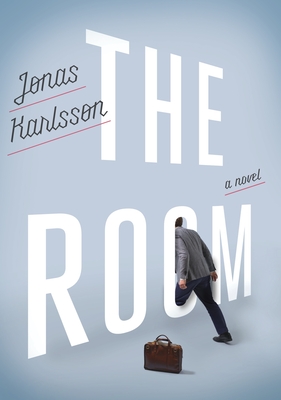

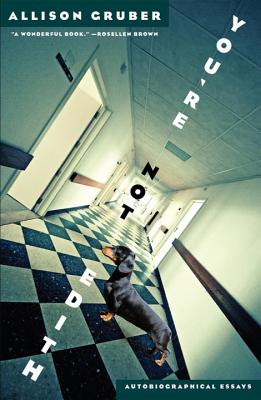

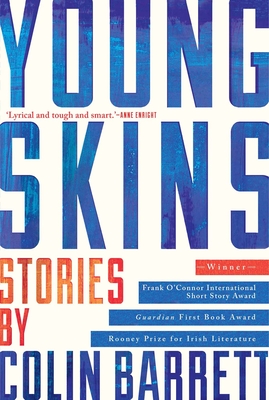


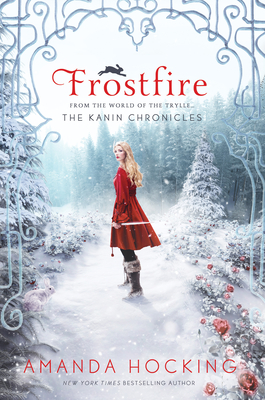
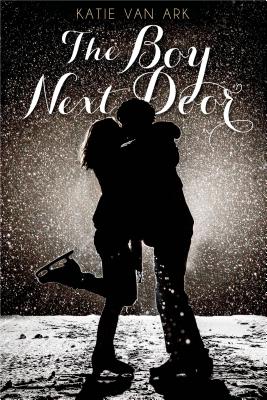
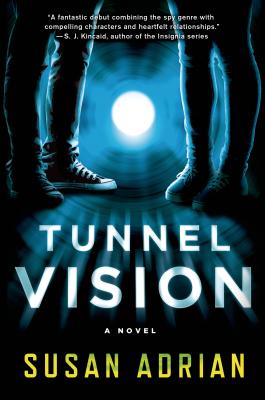
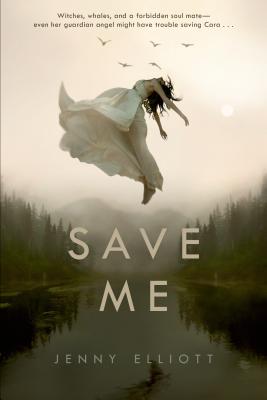
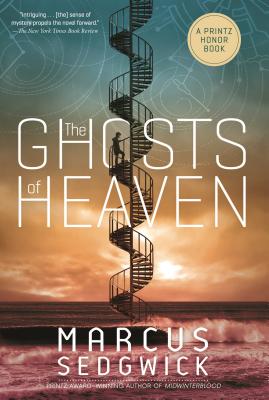
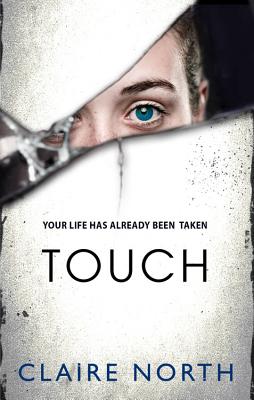

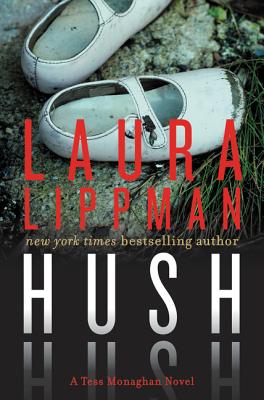
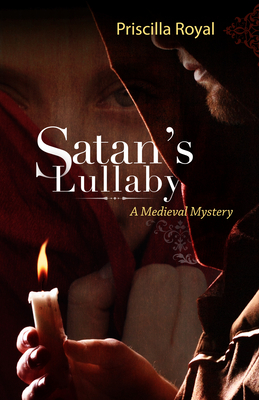
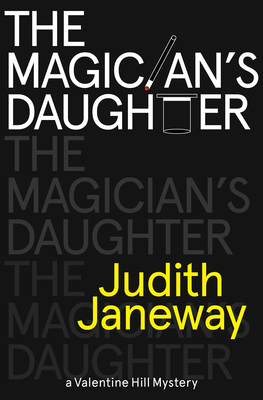
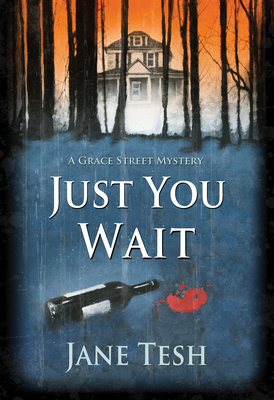
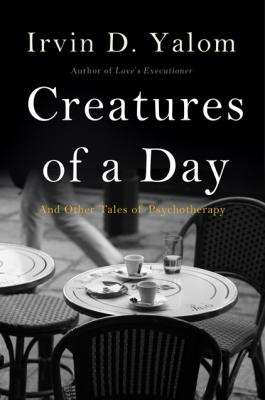
.jpg)

